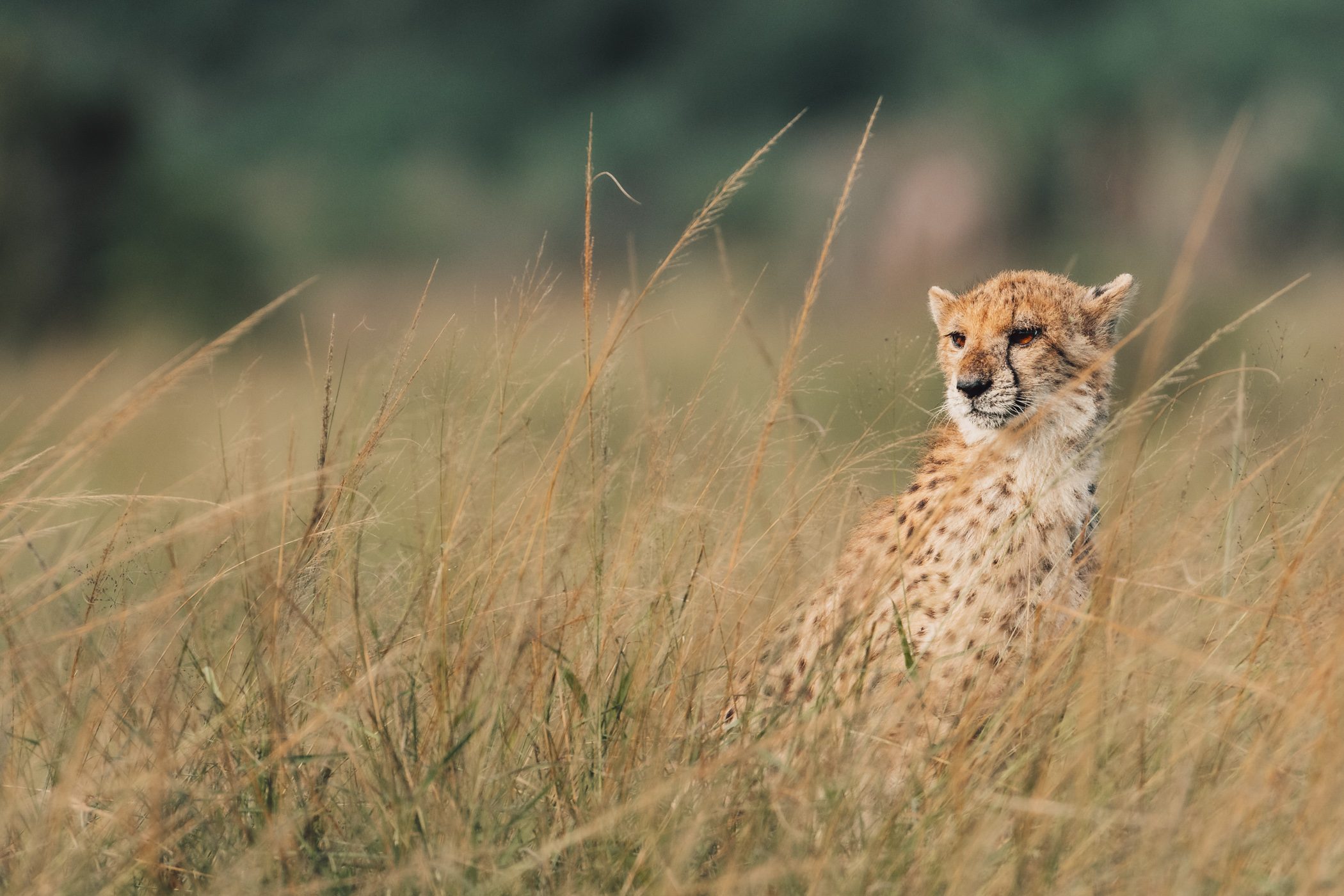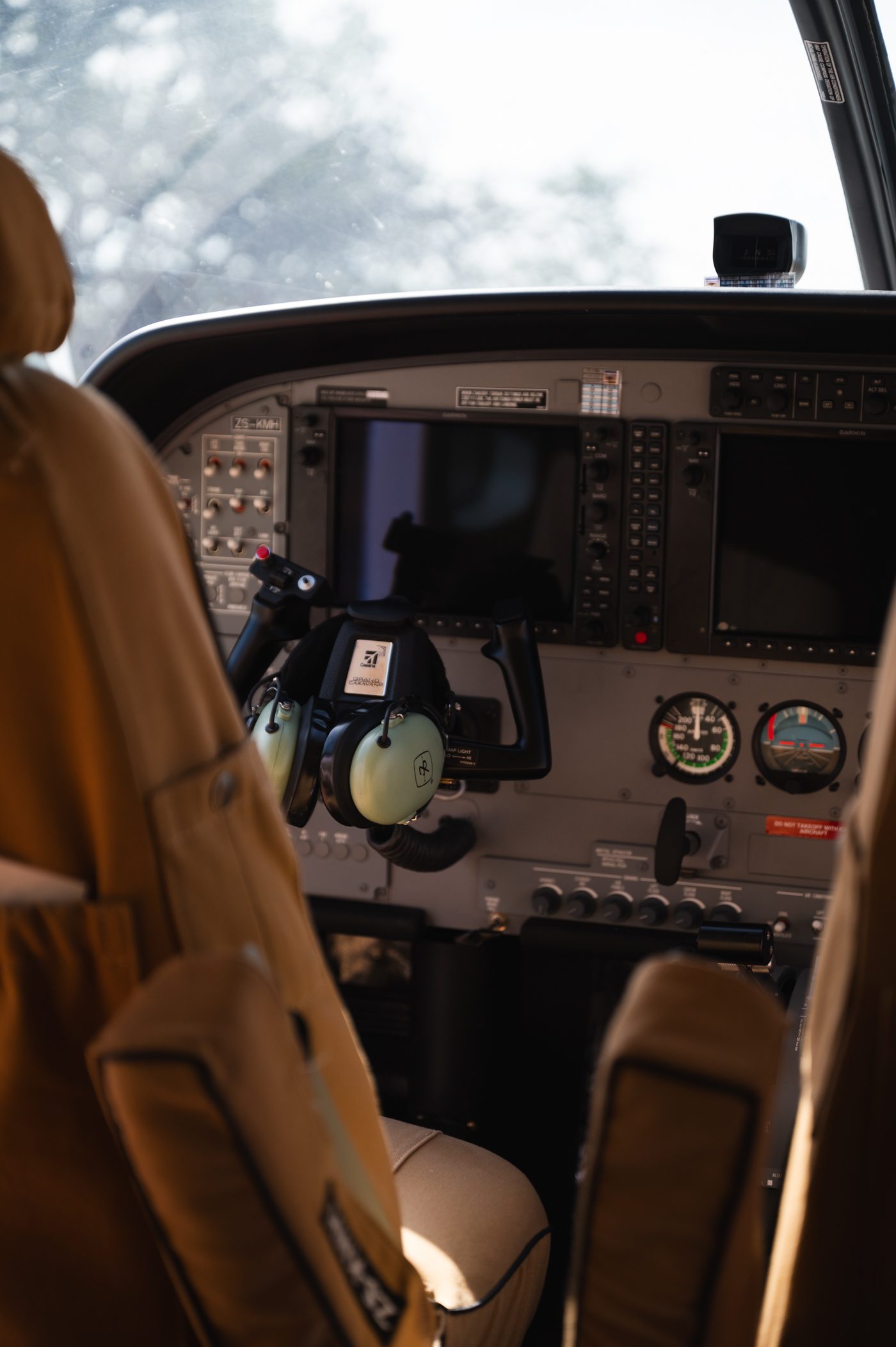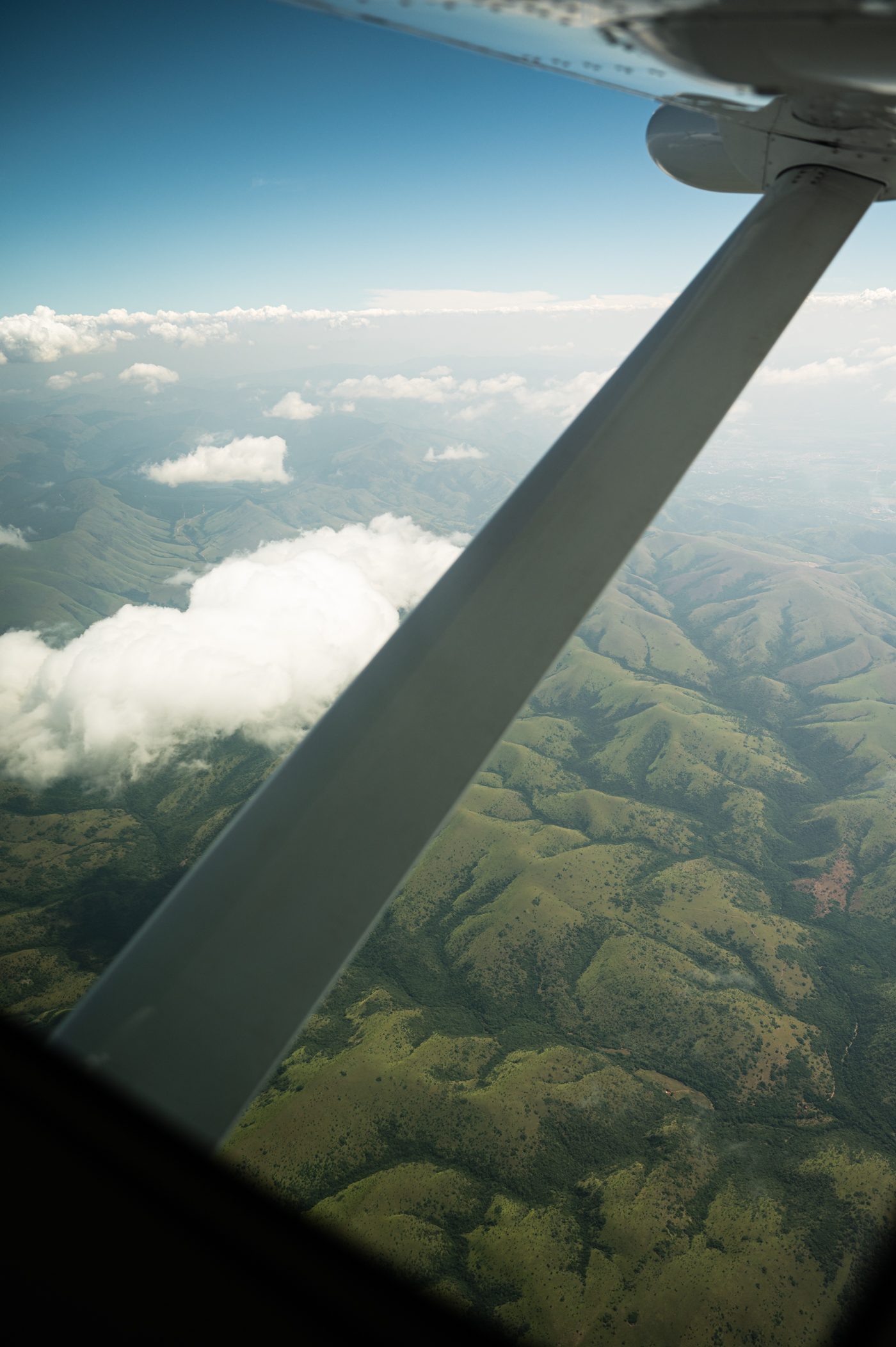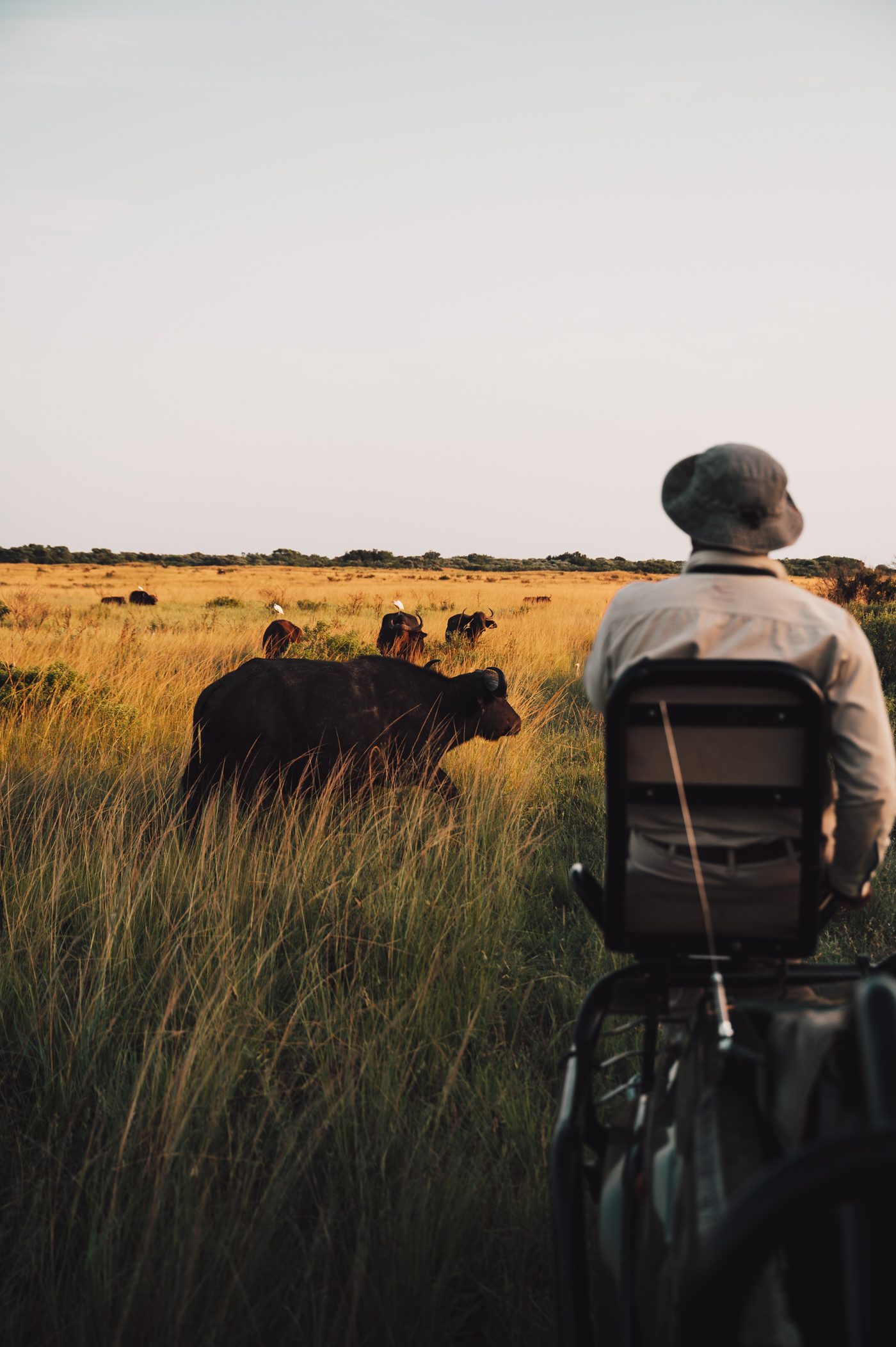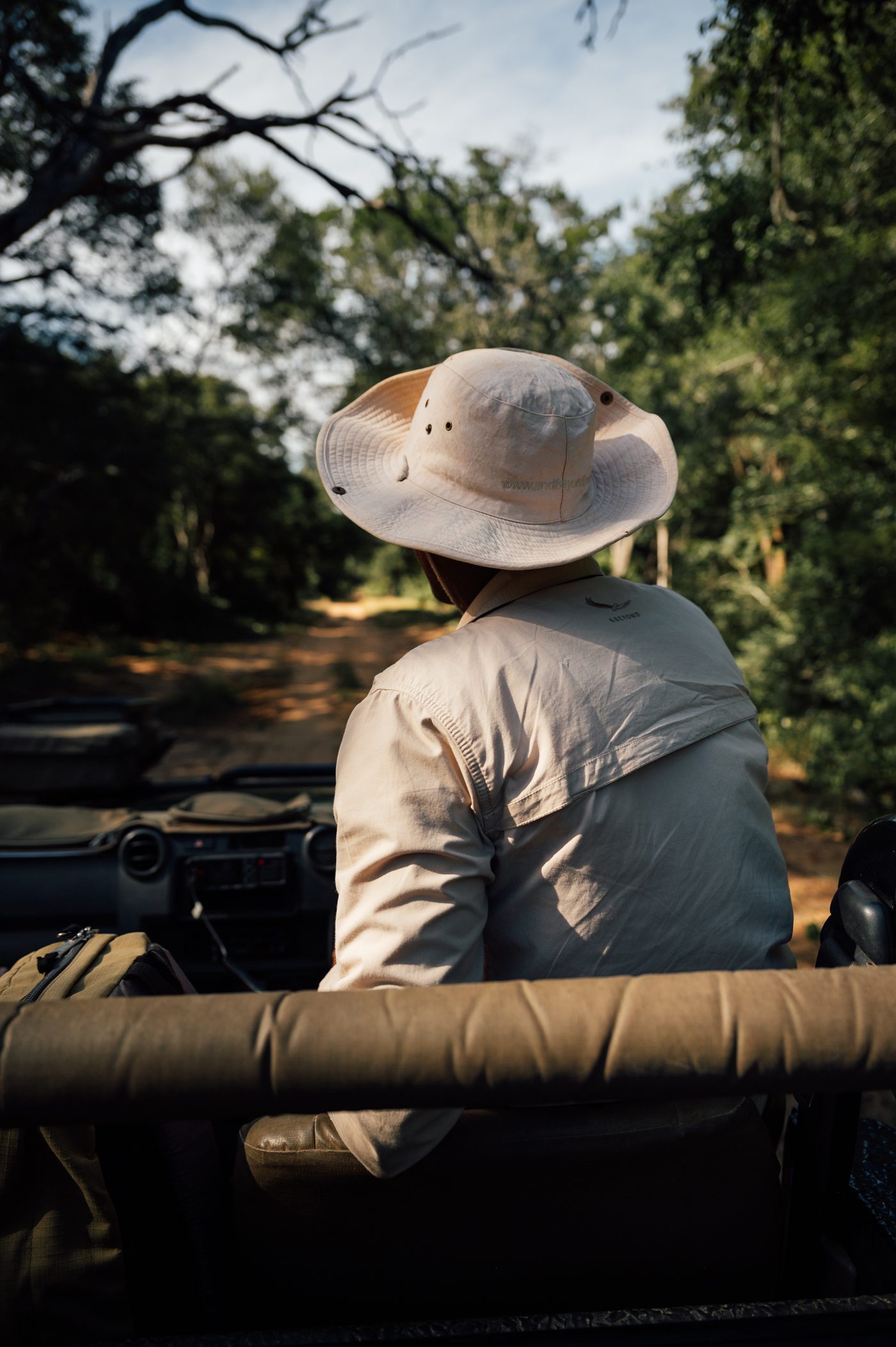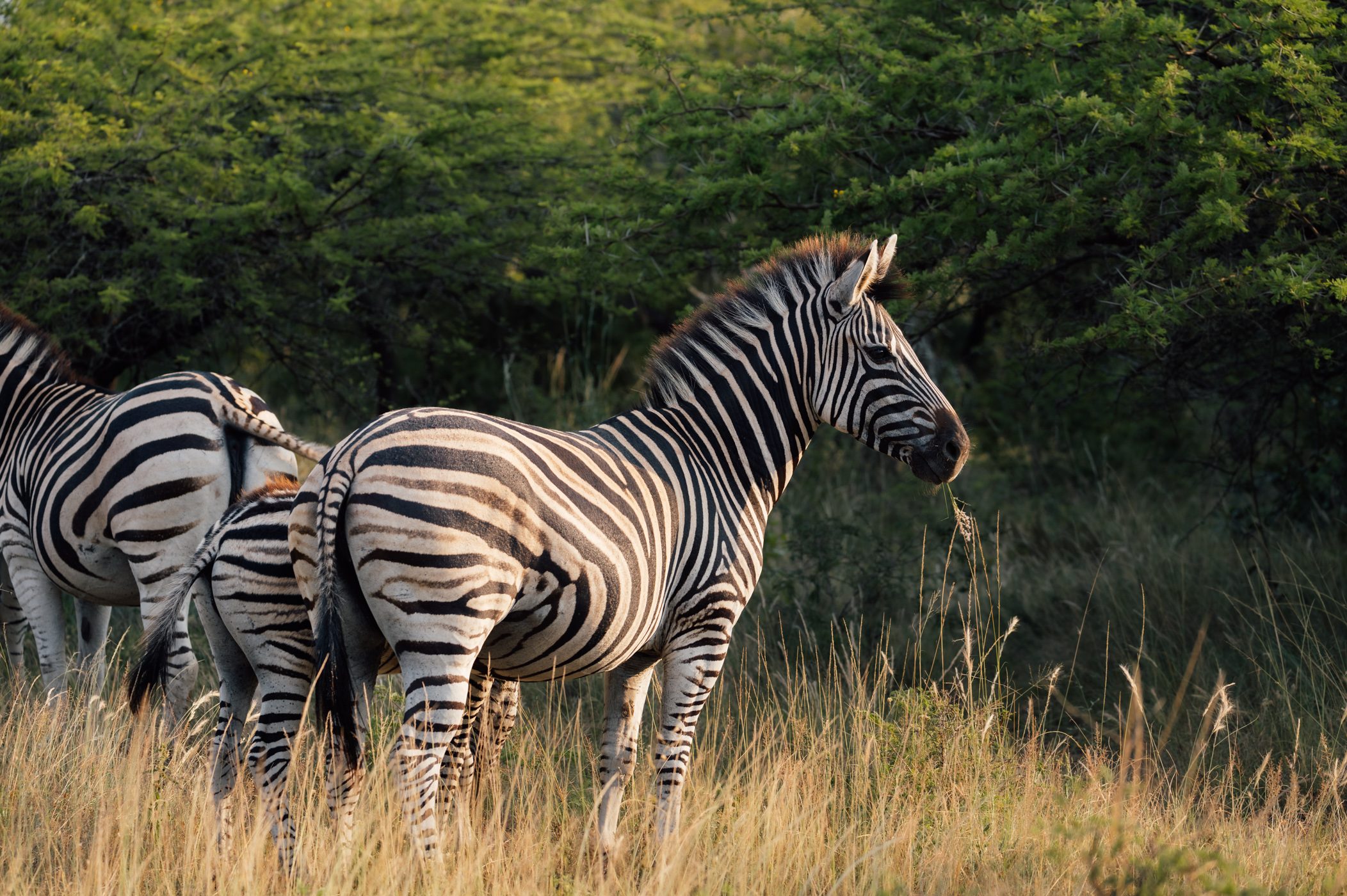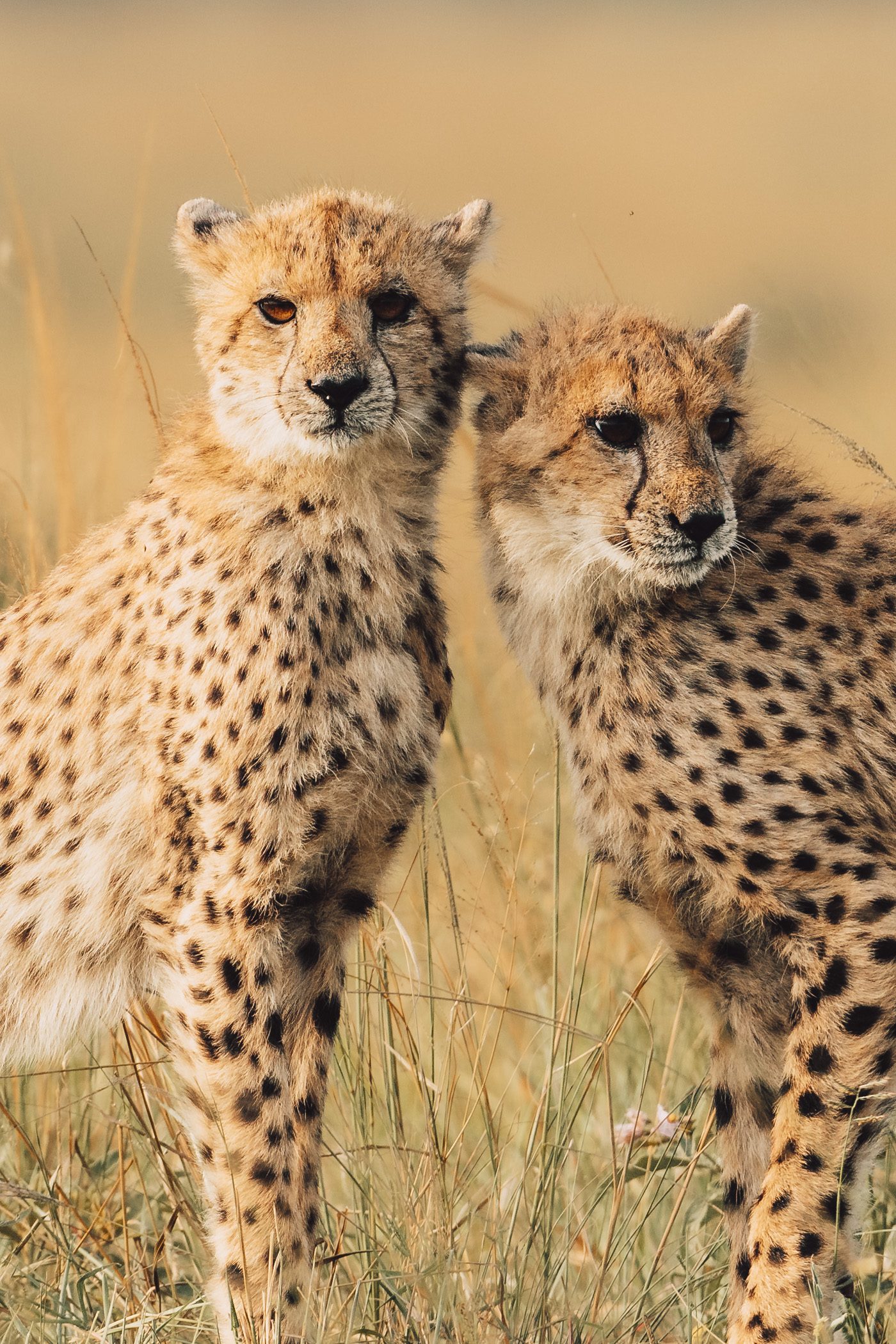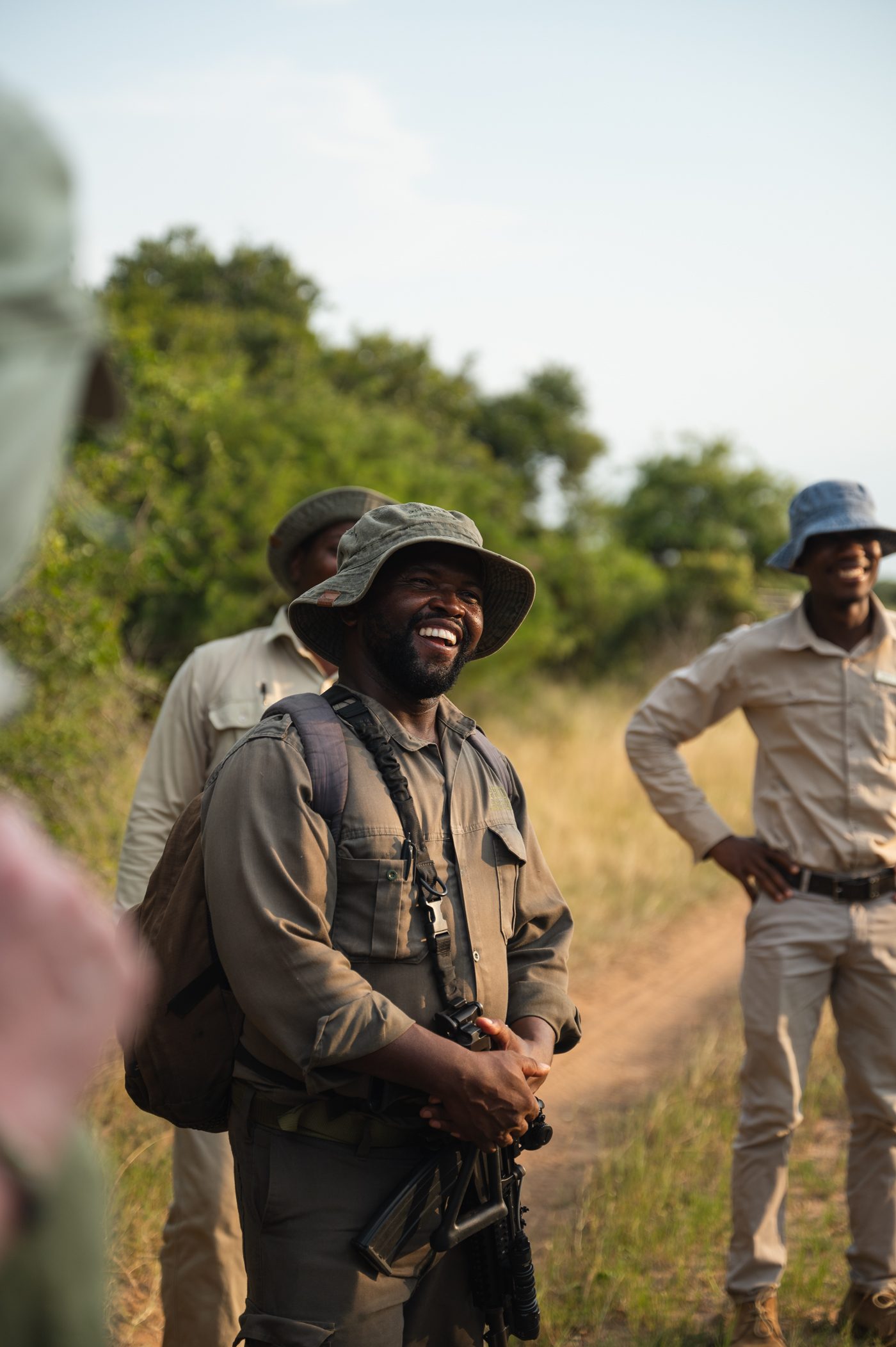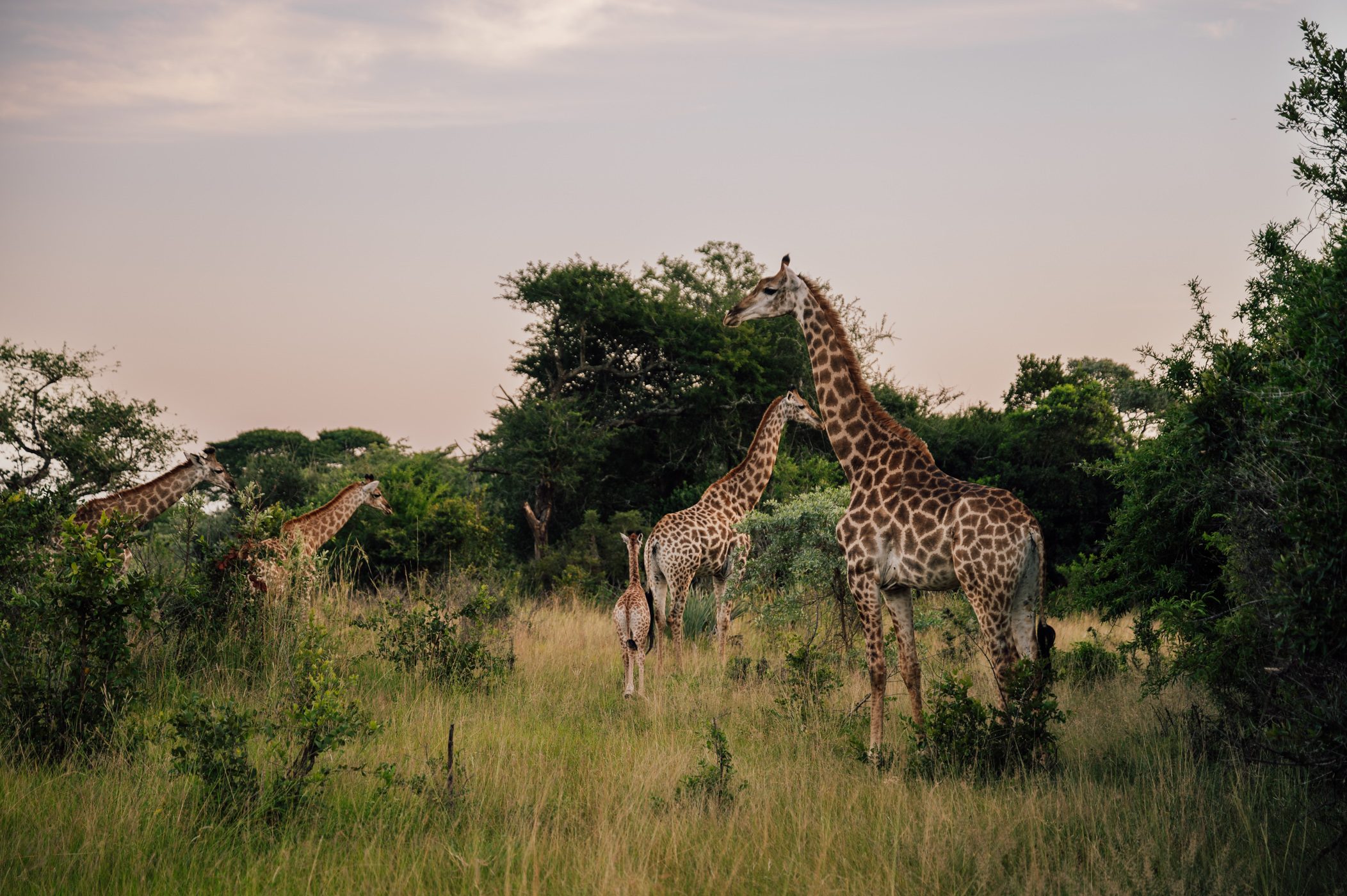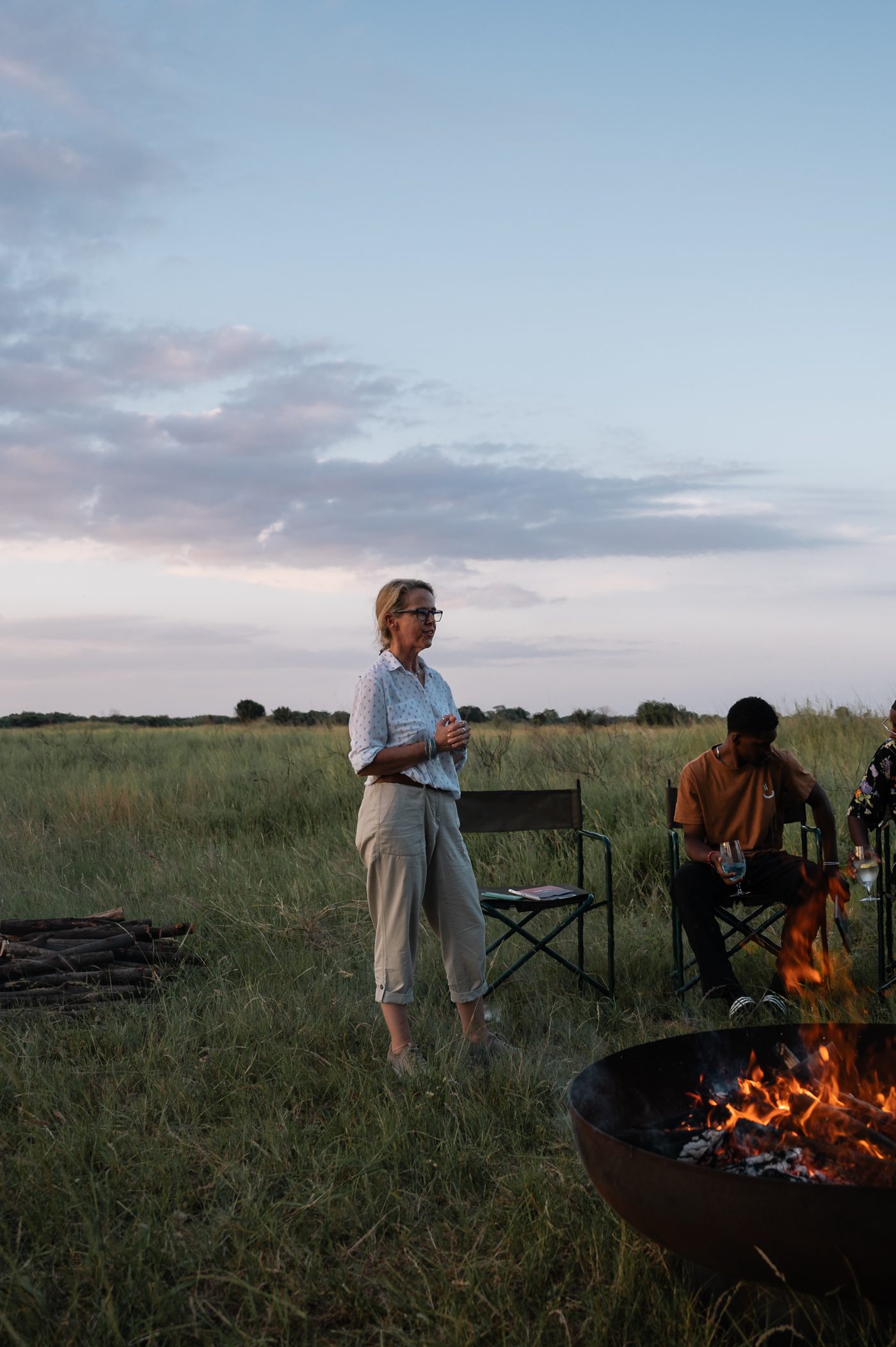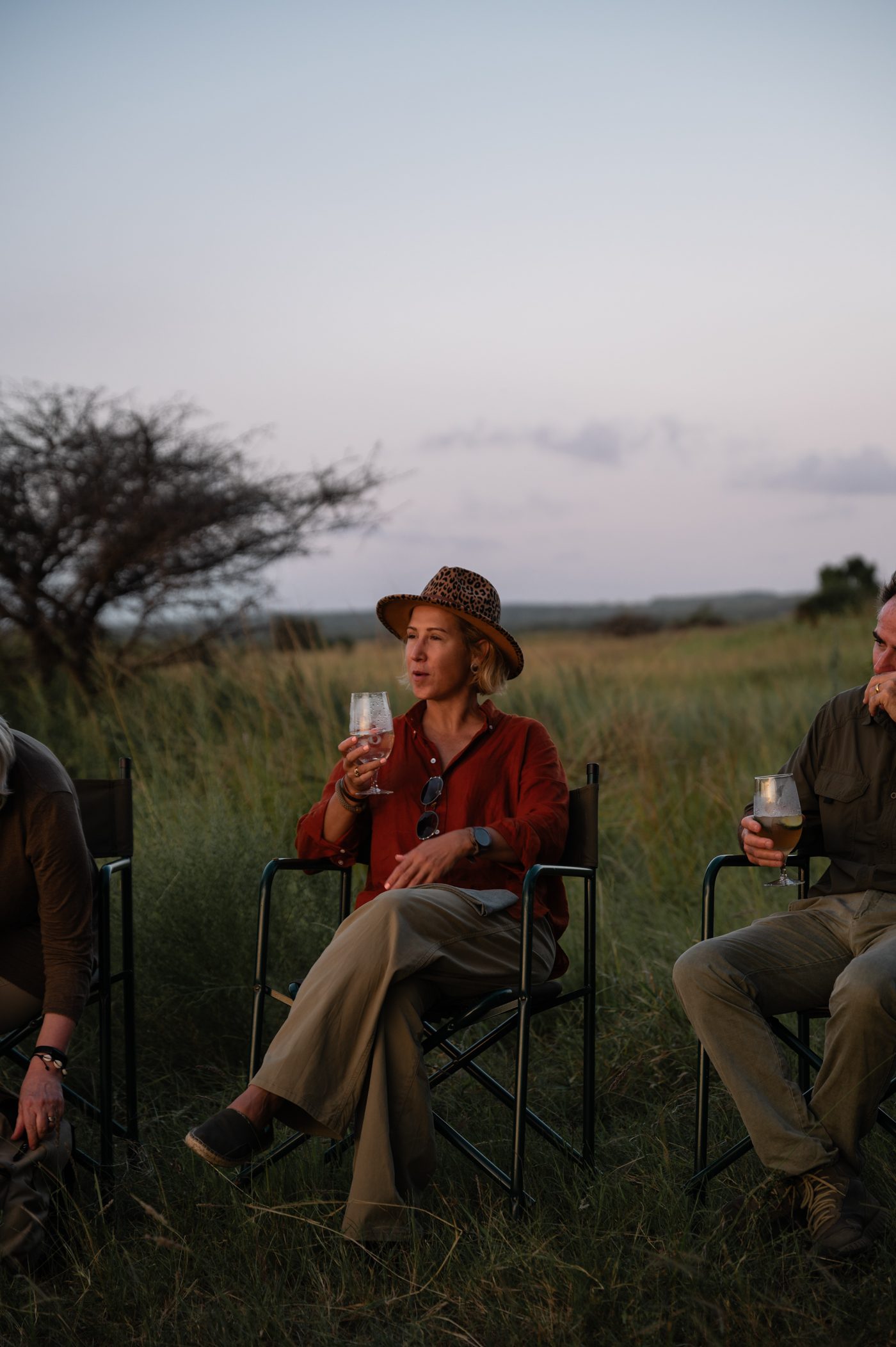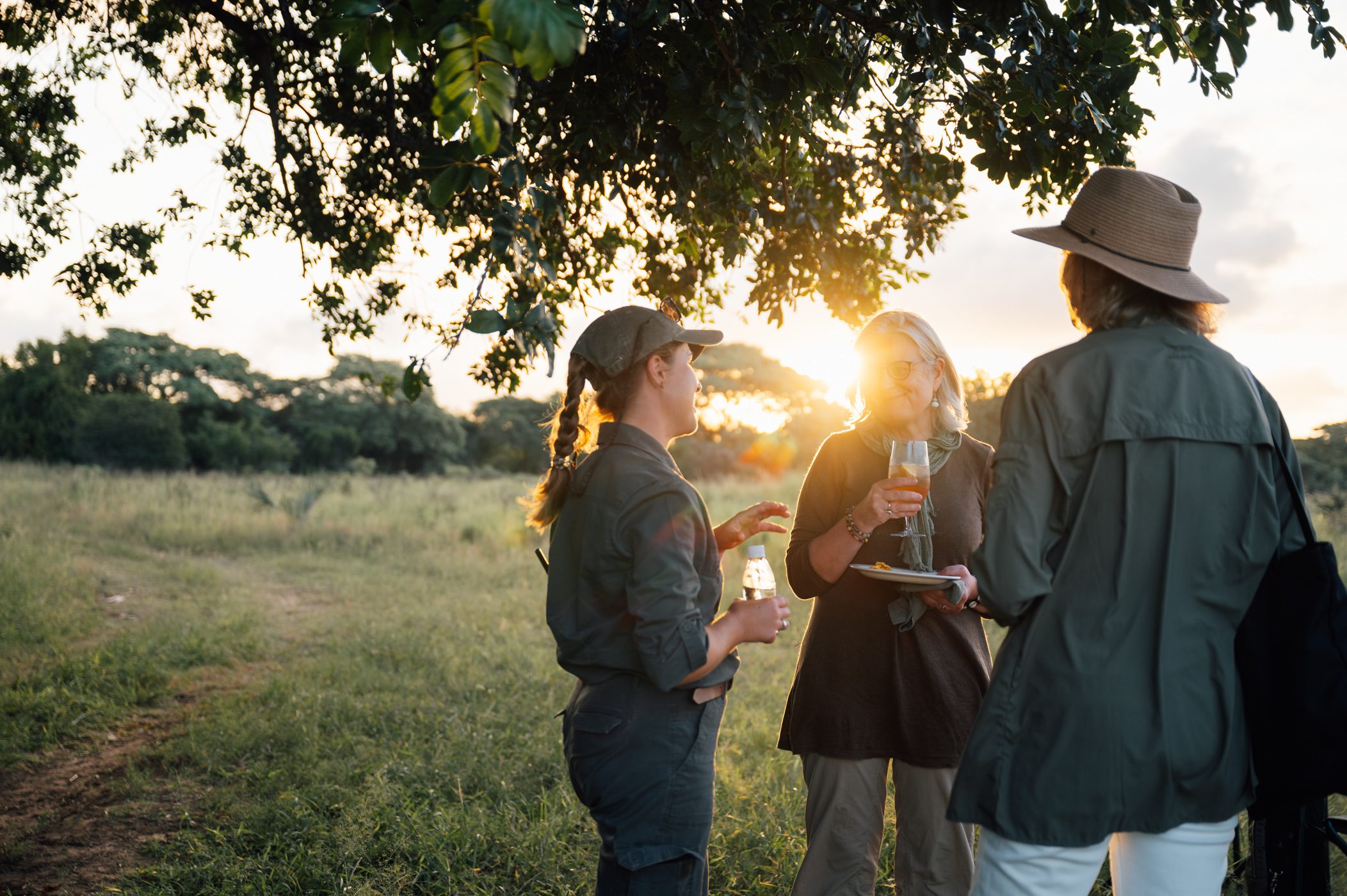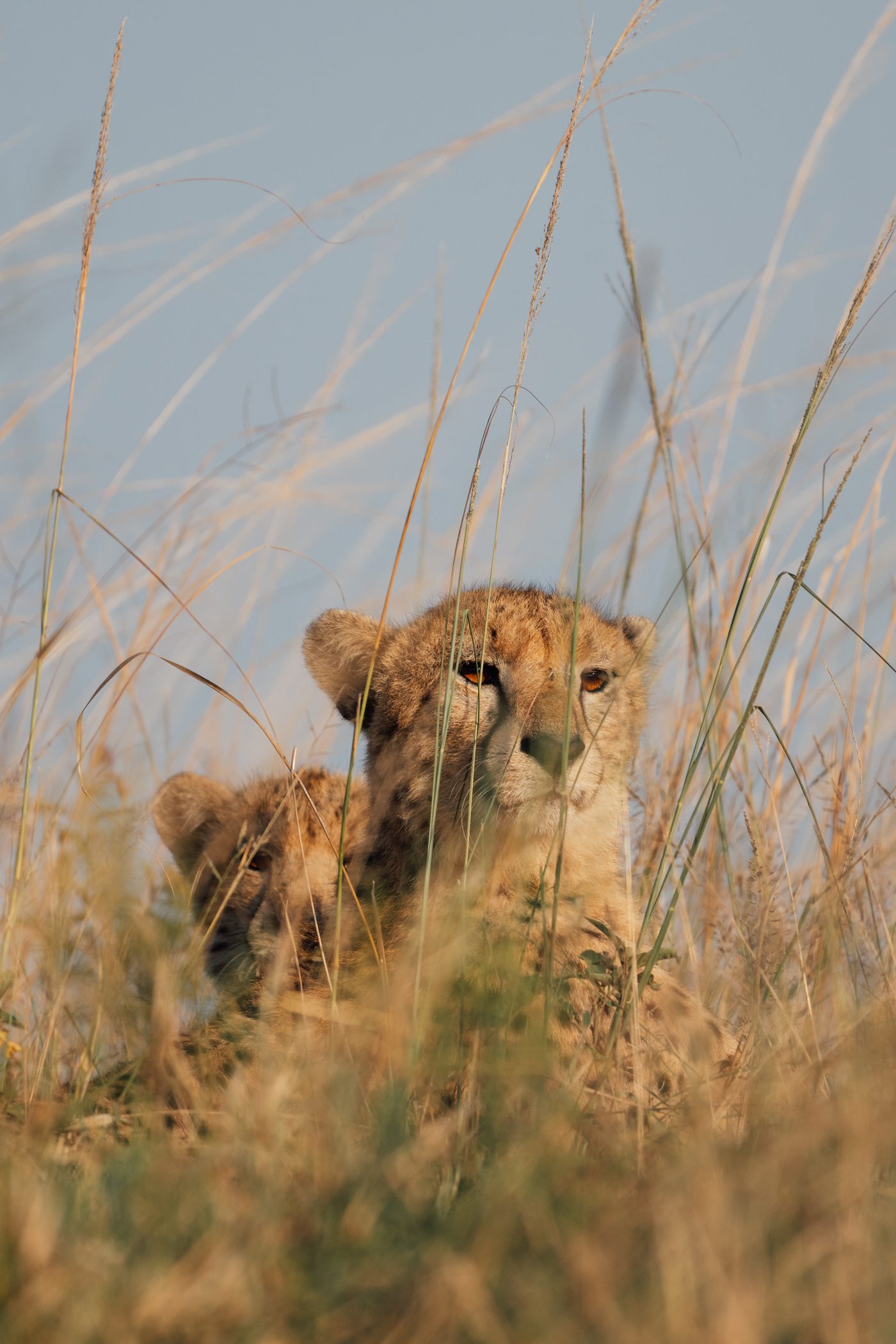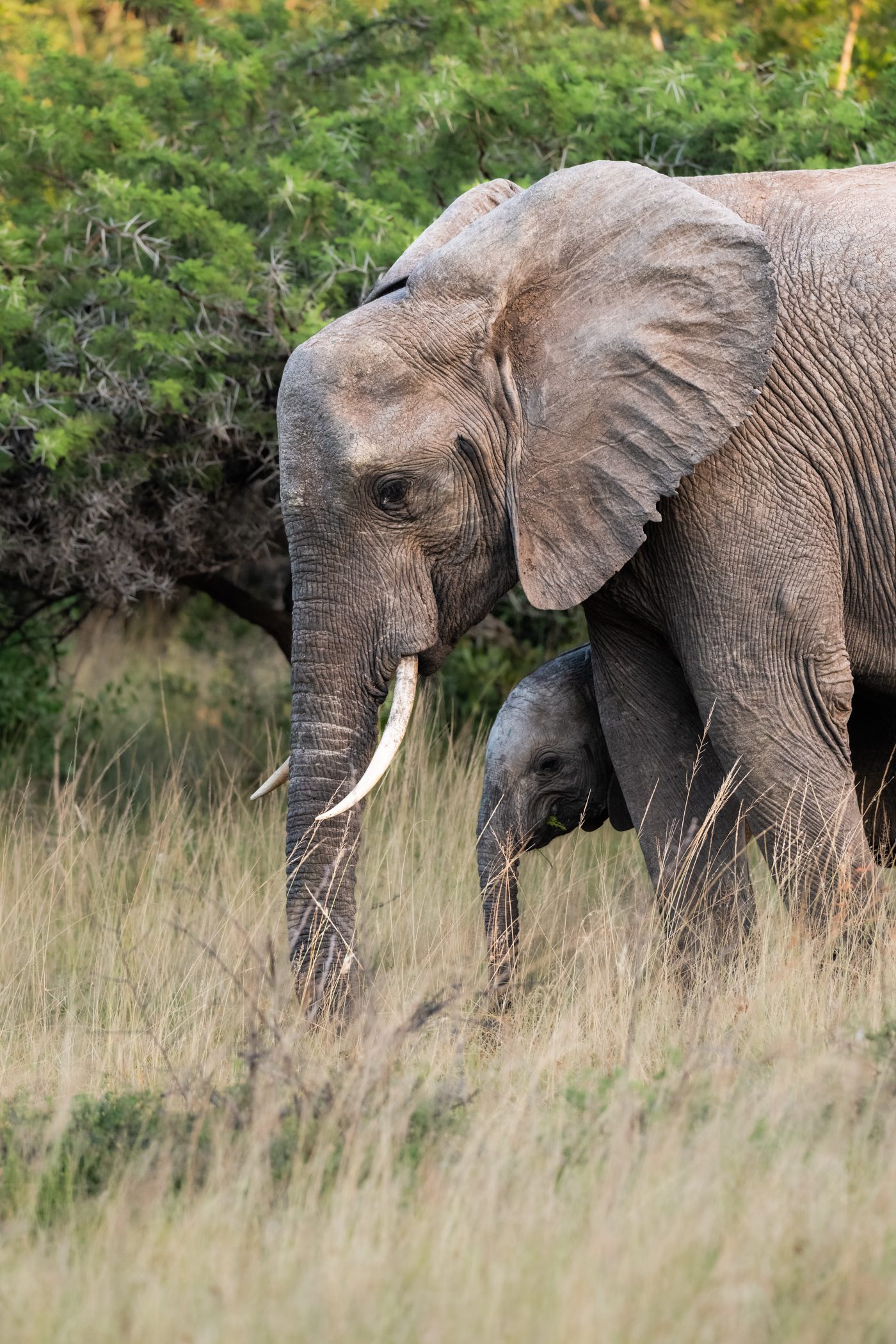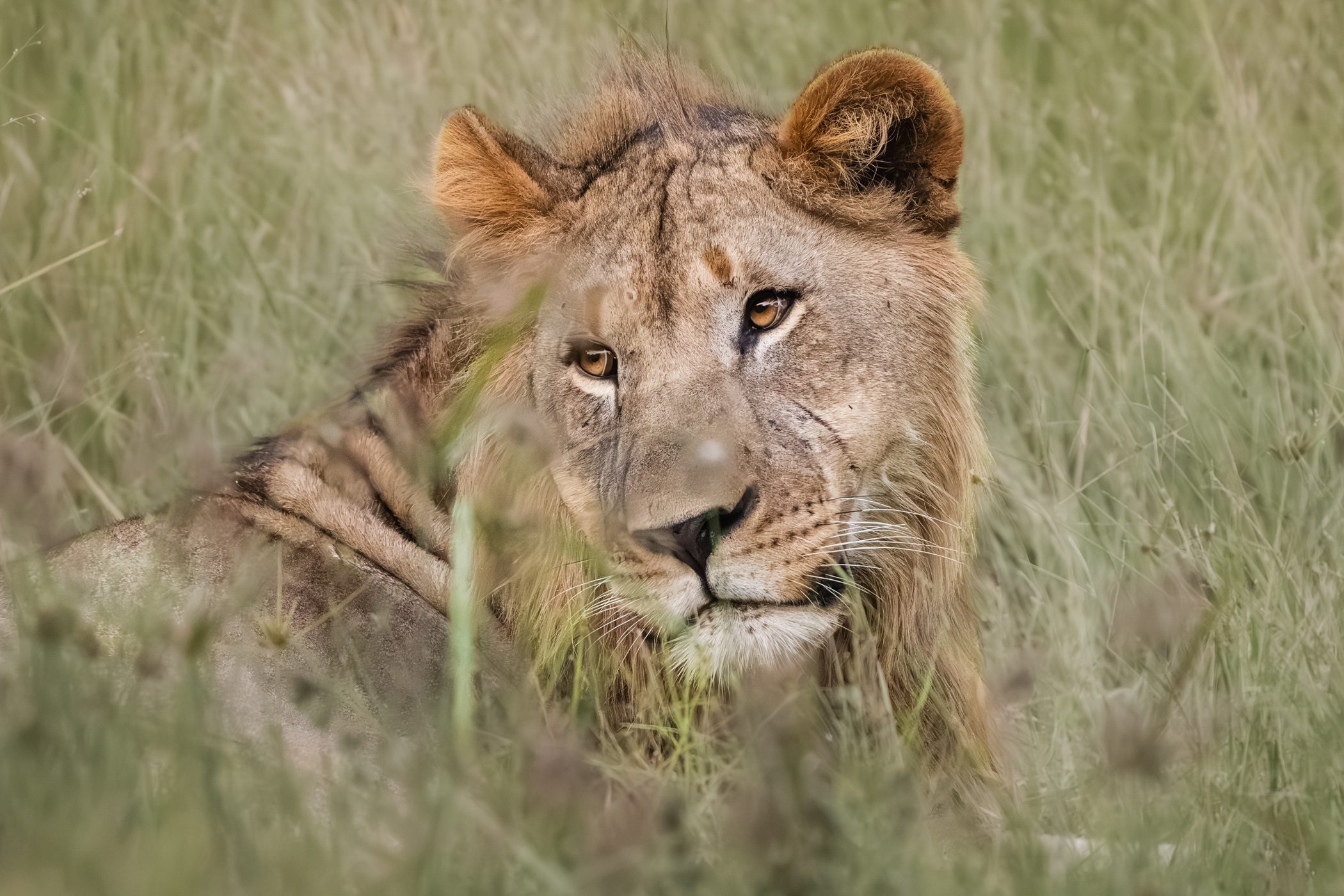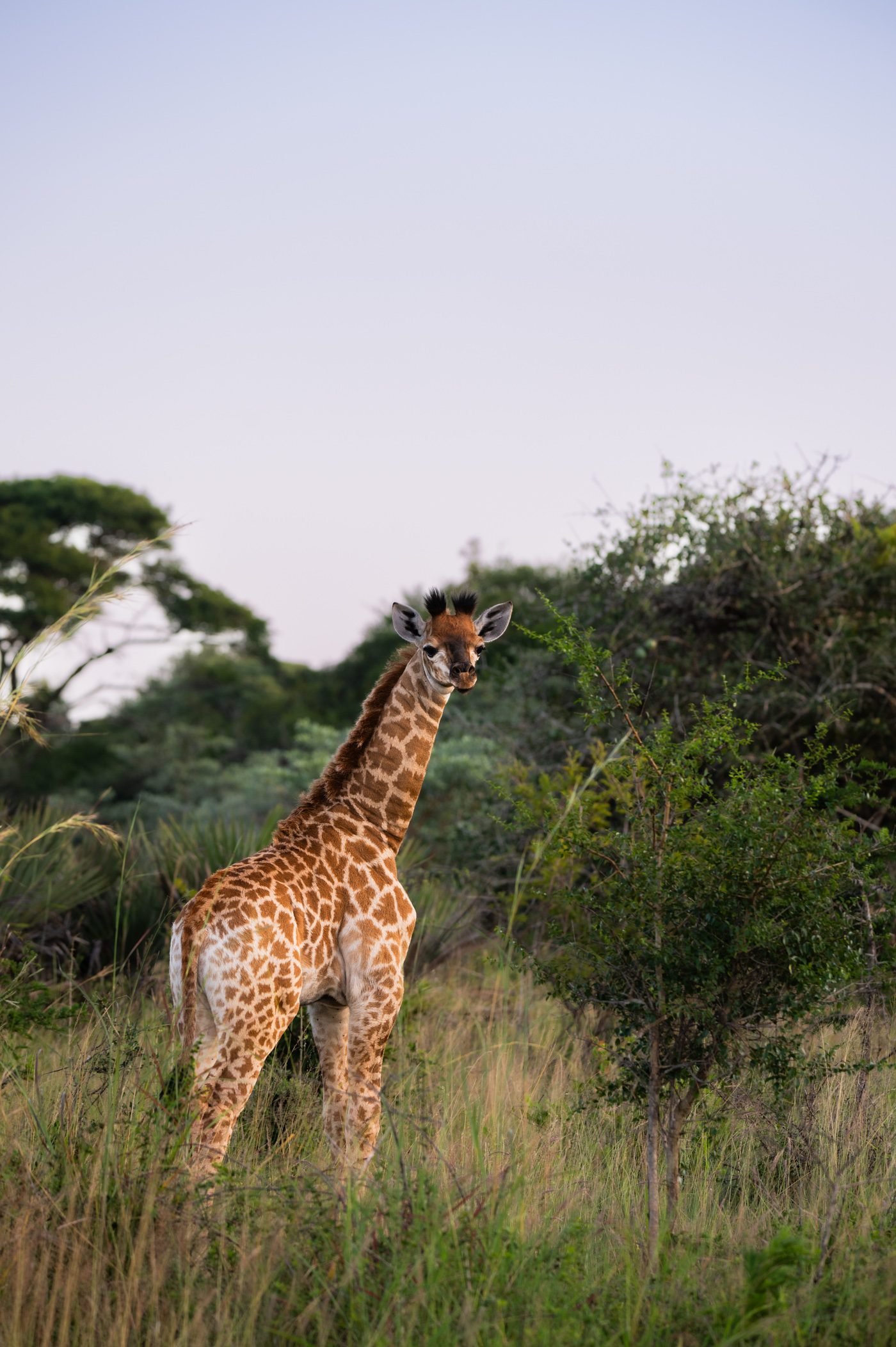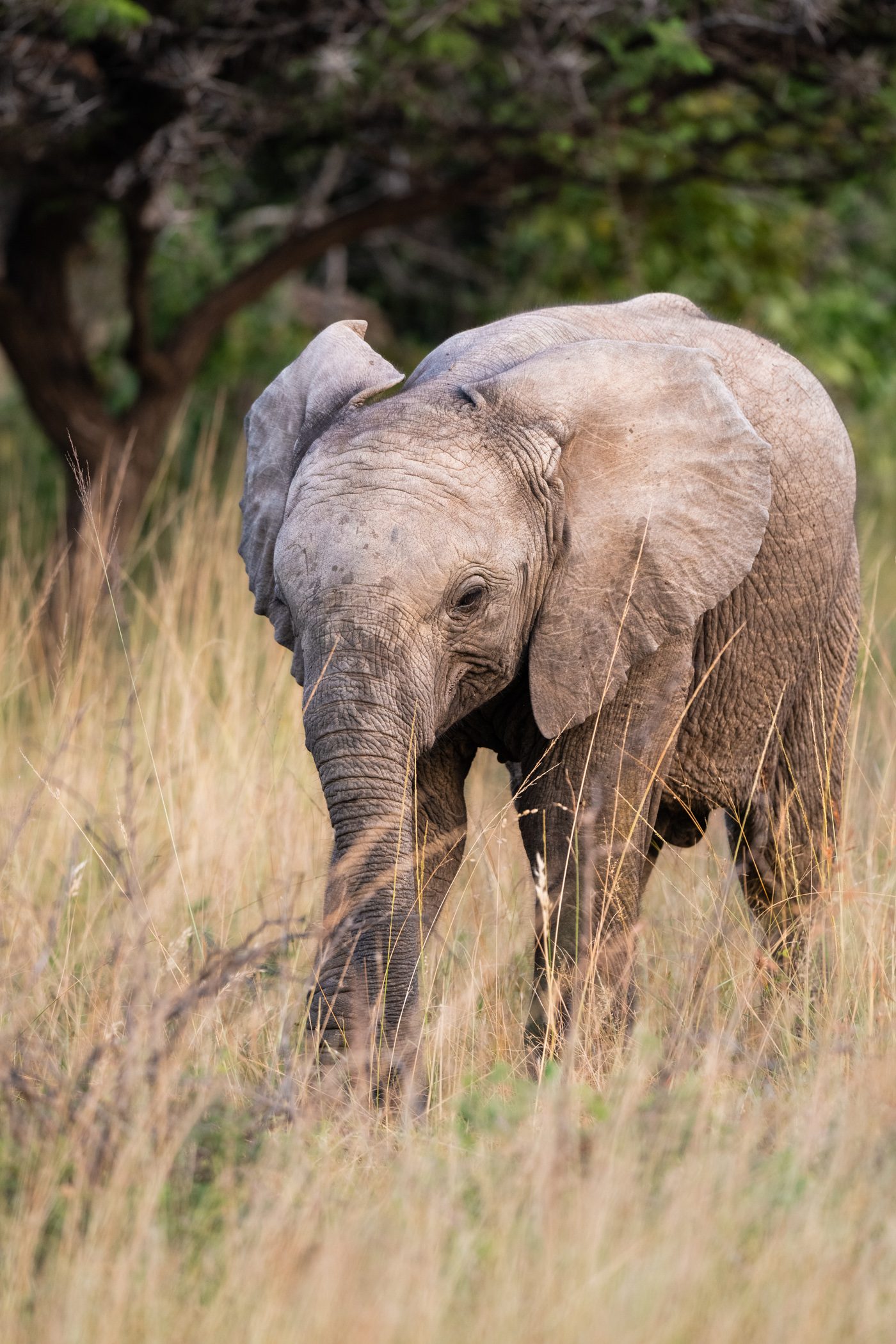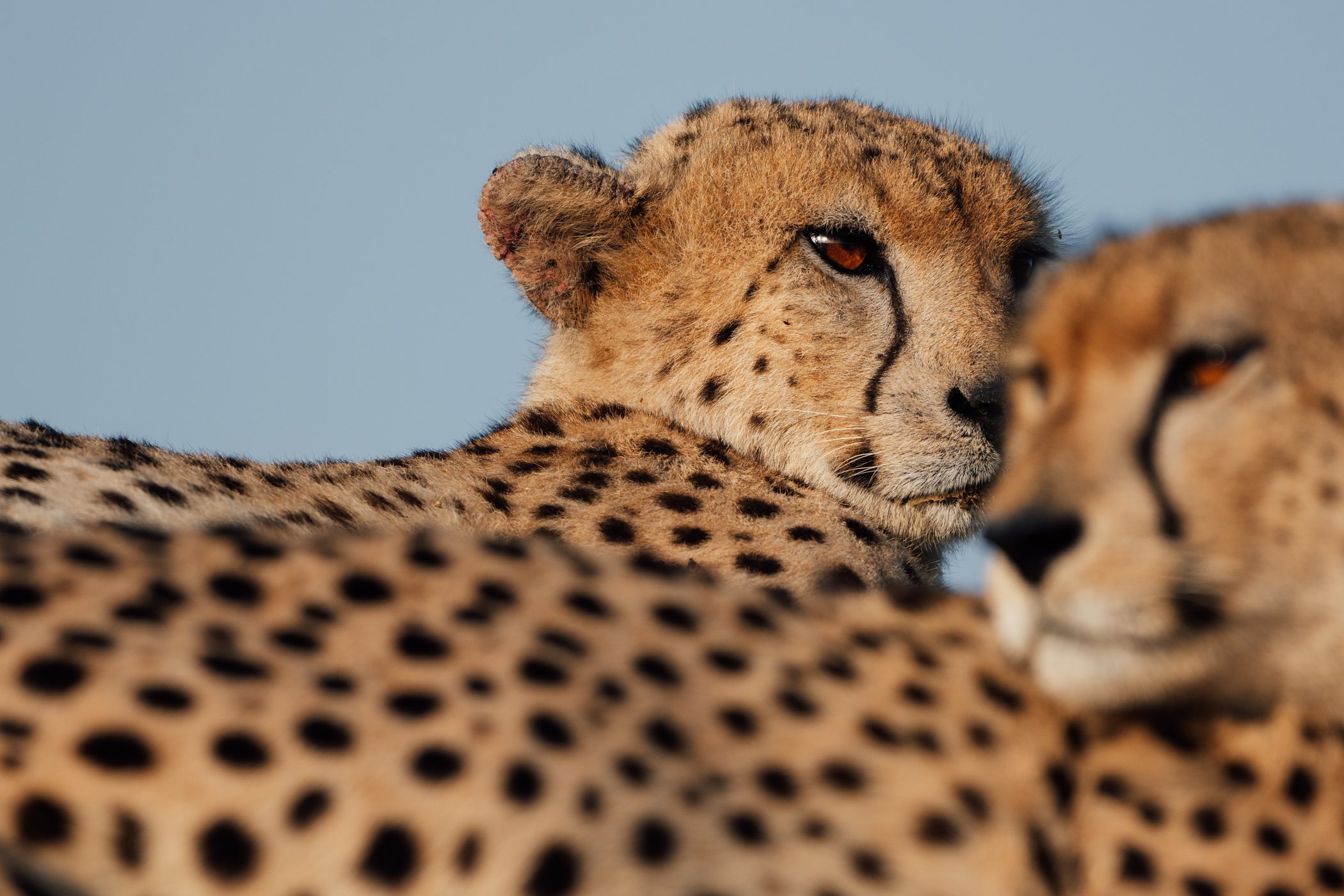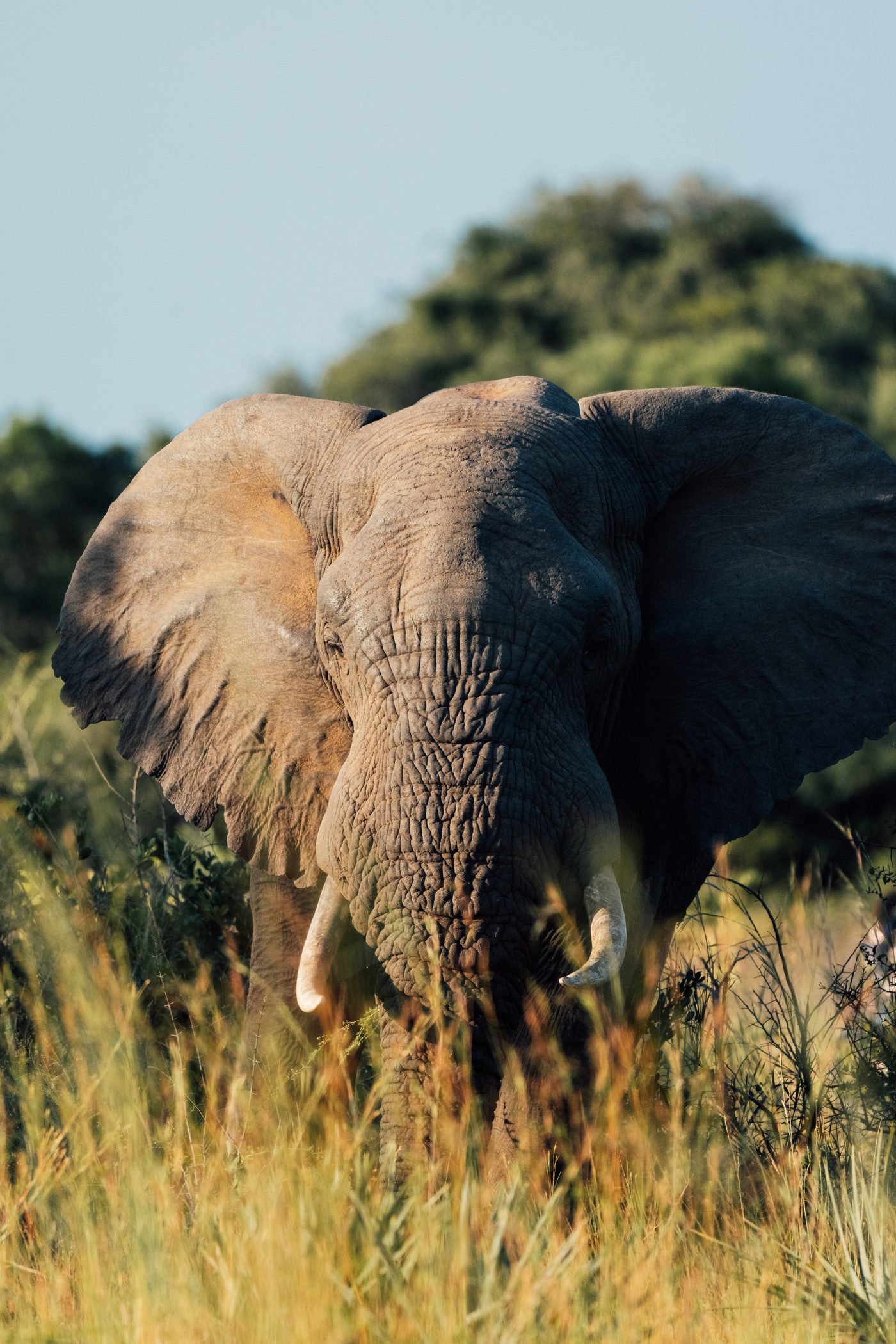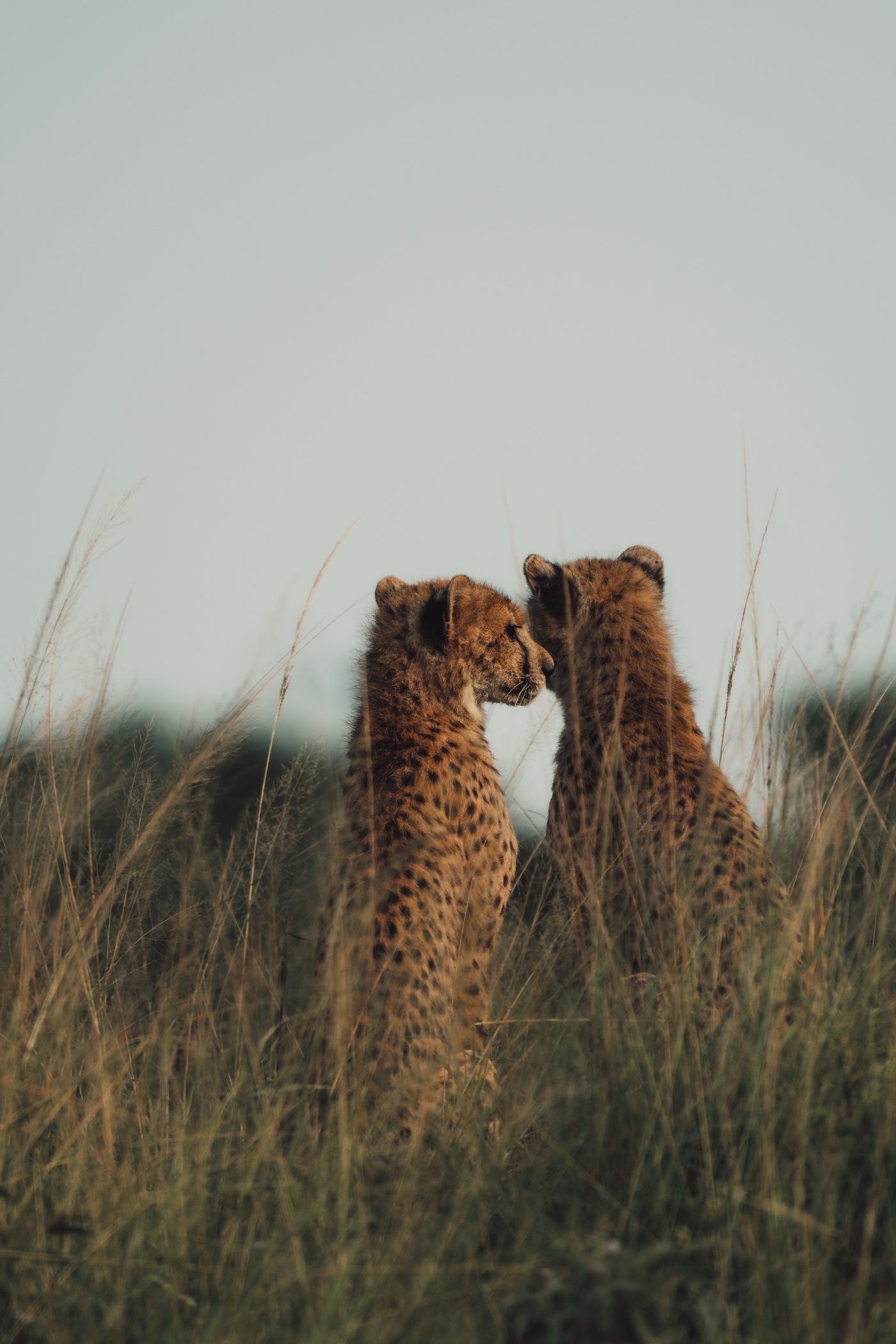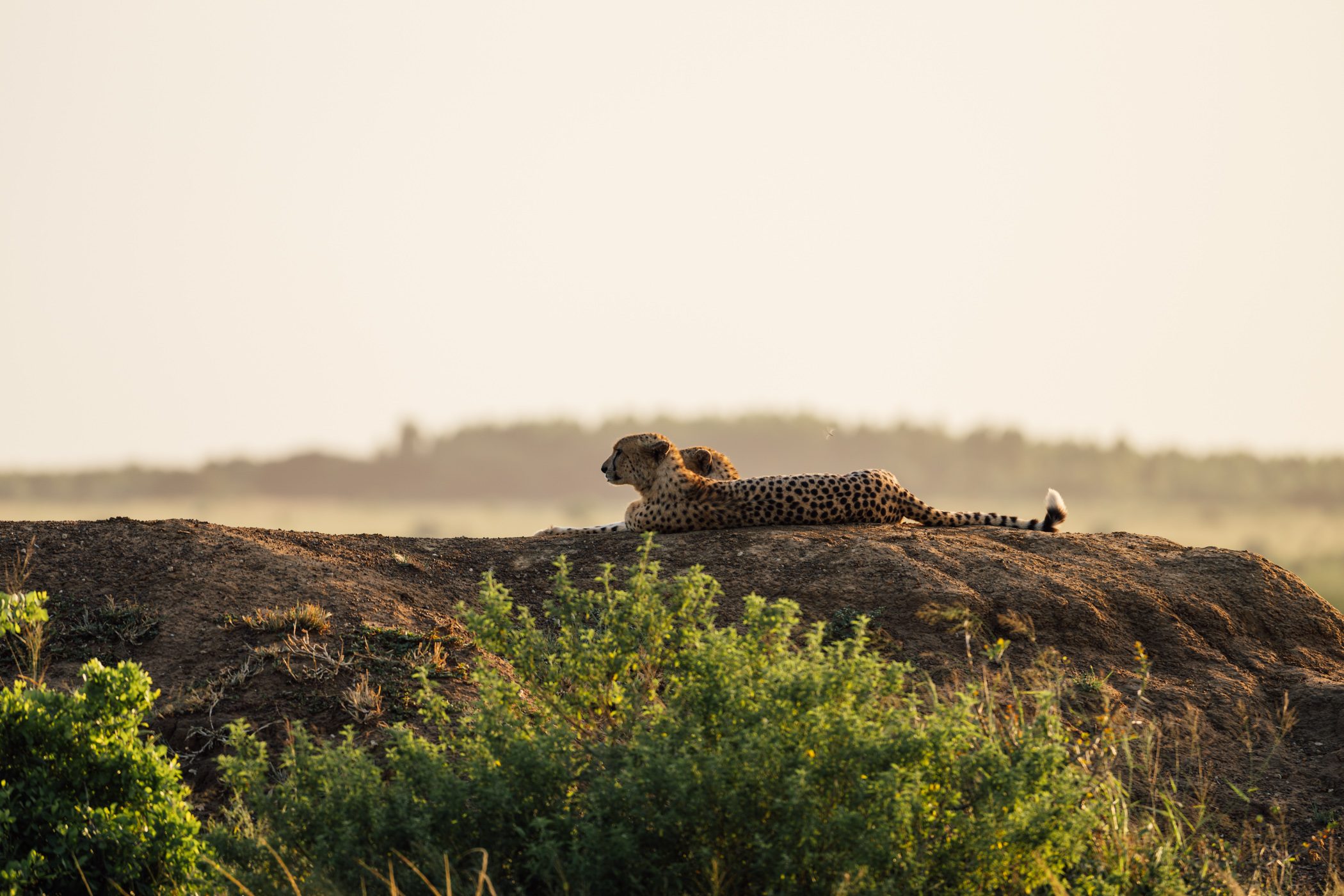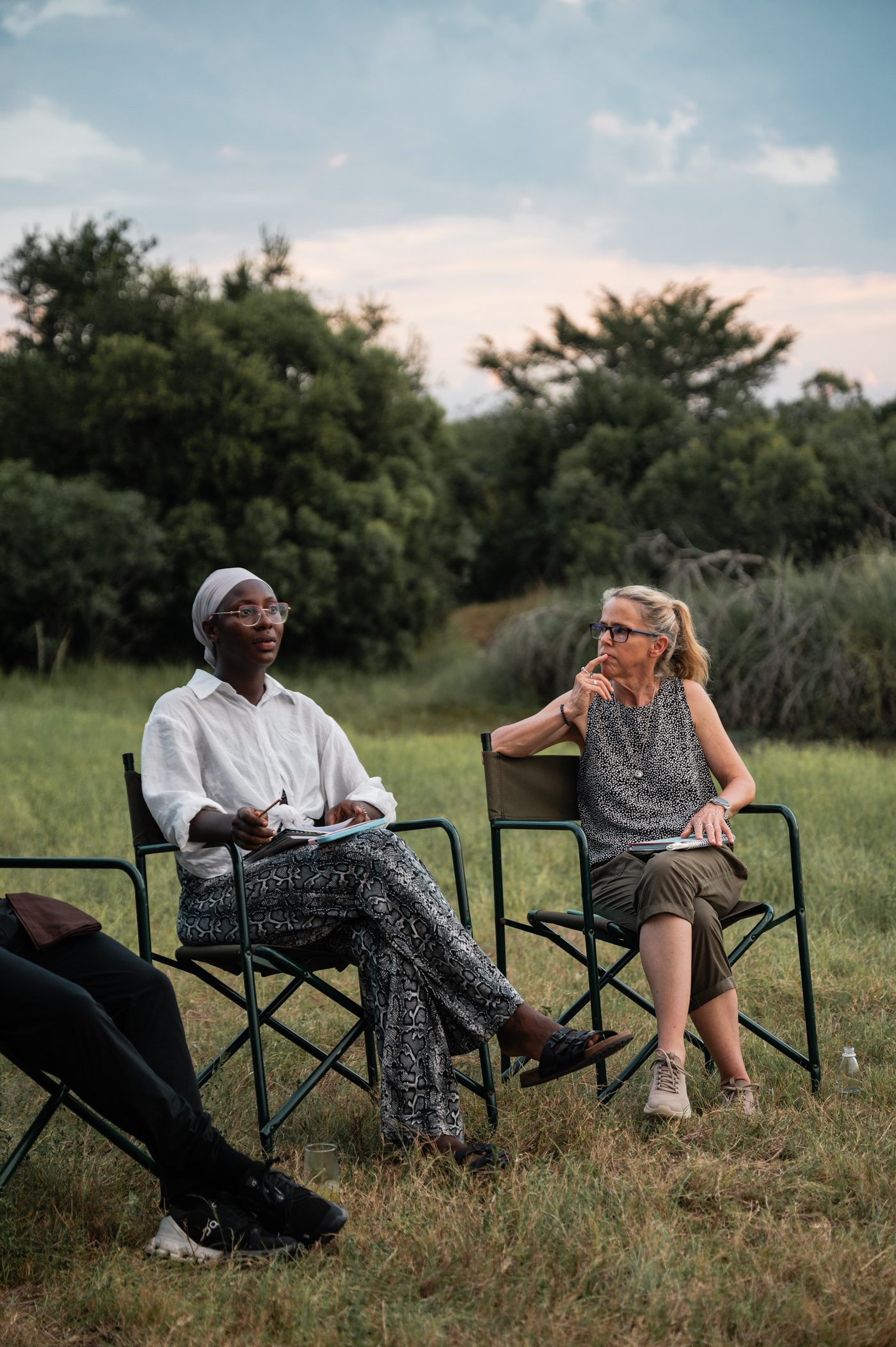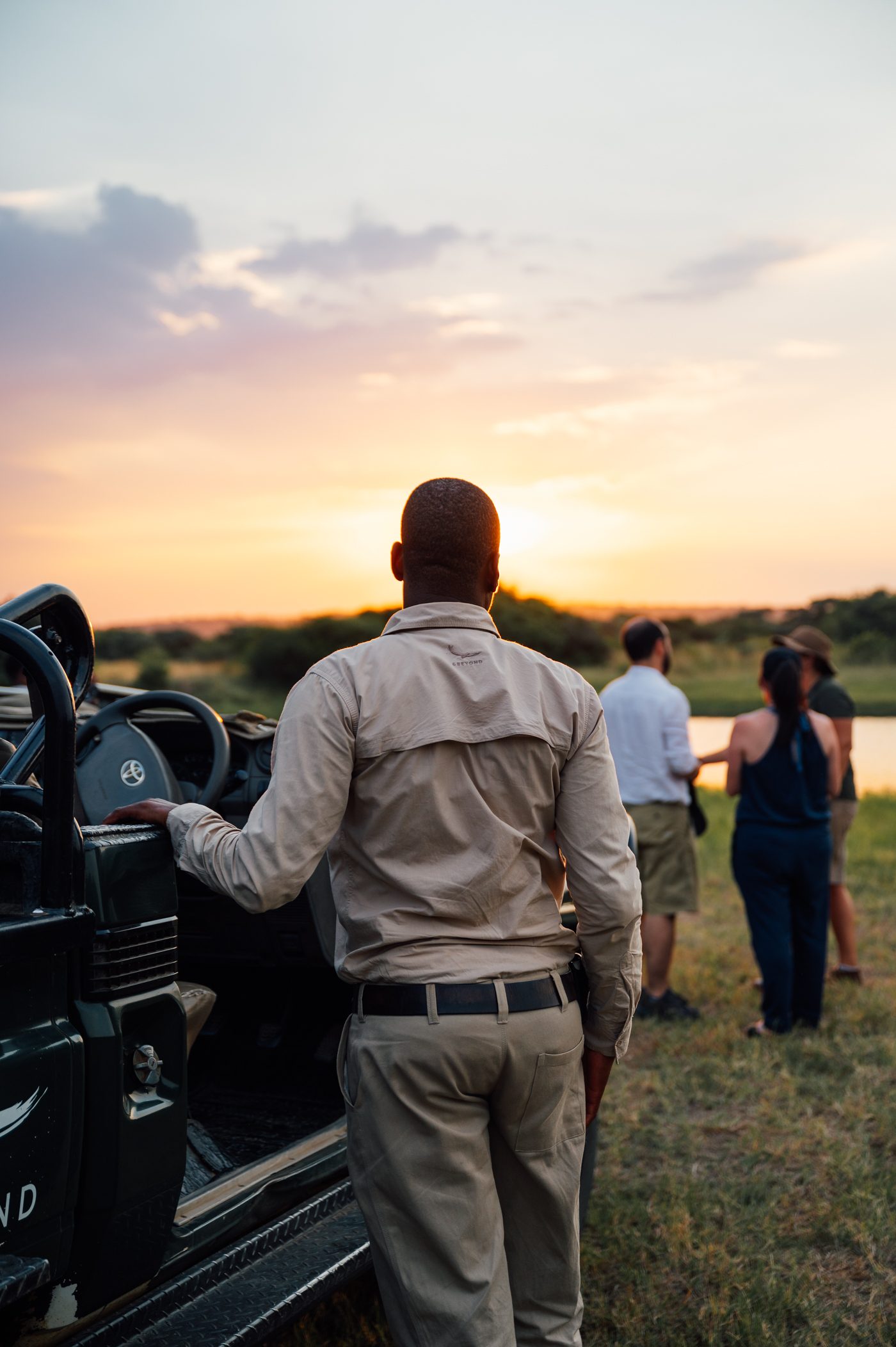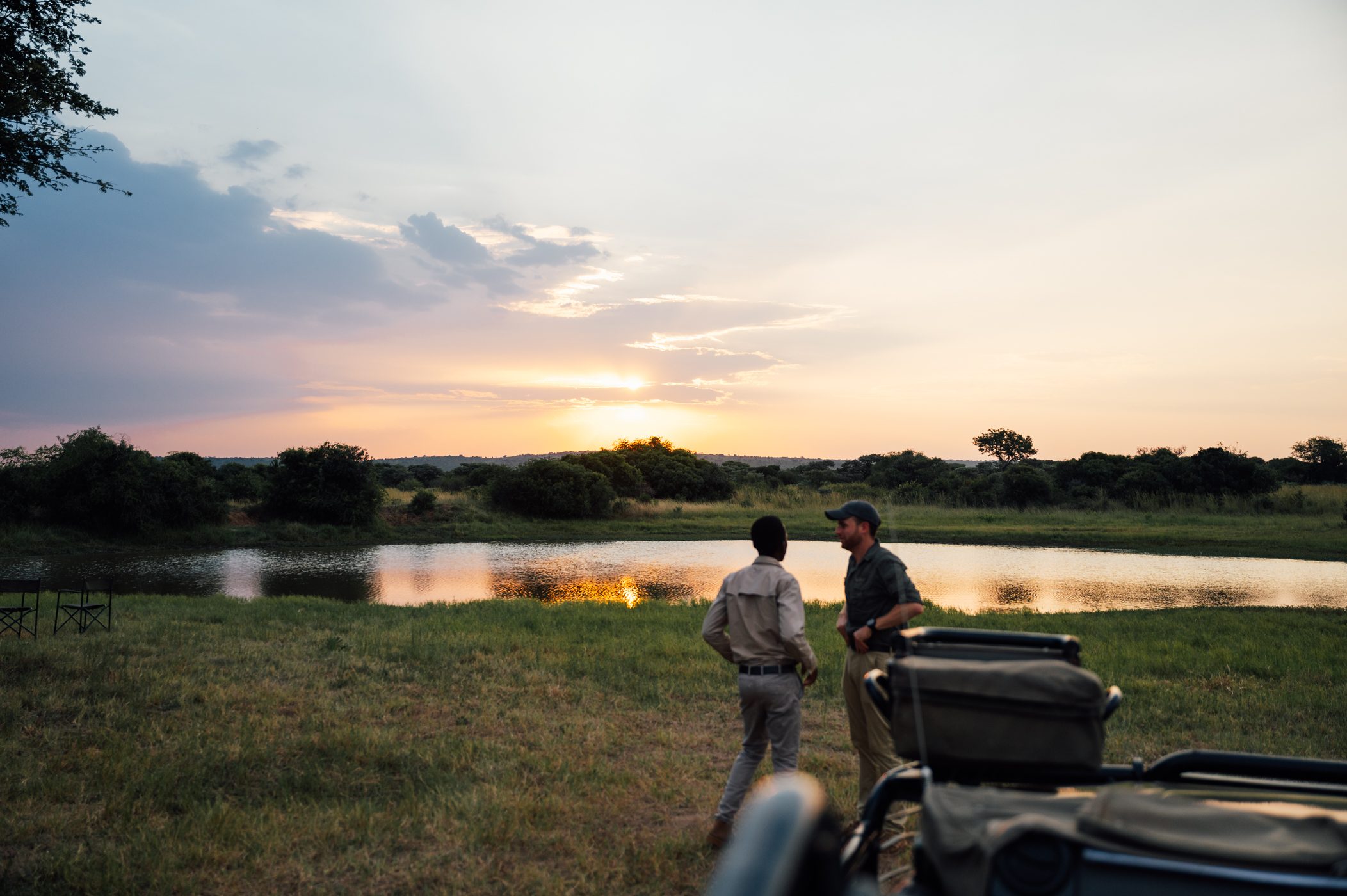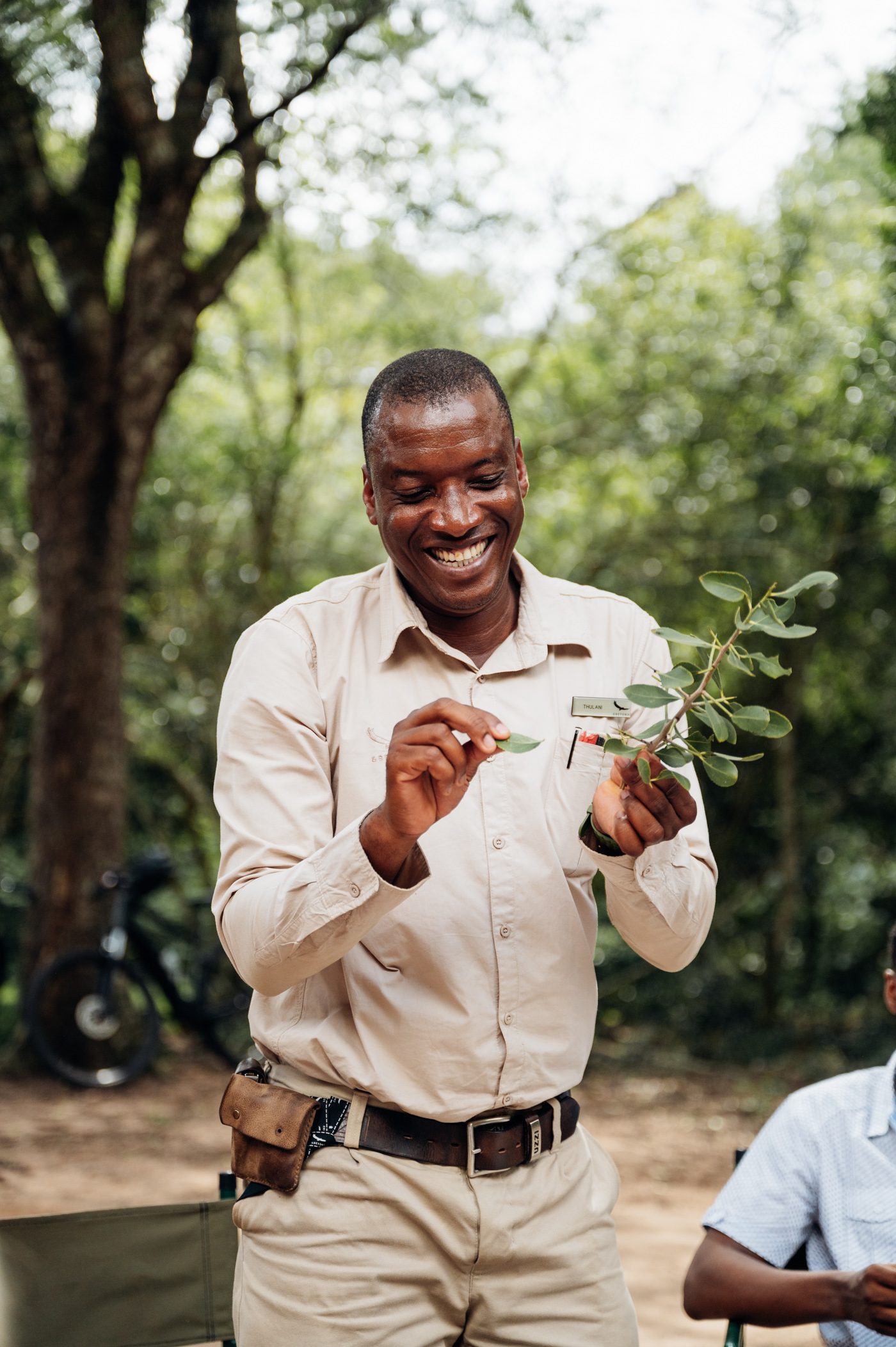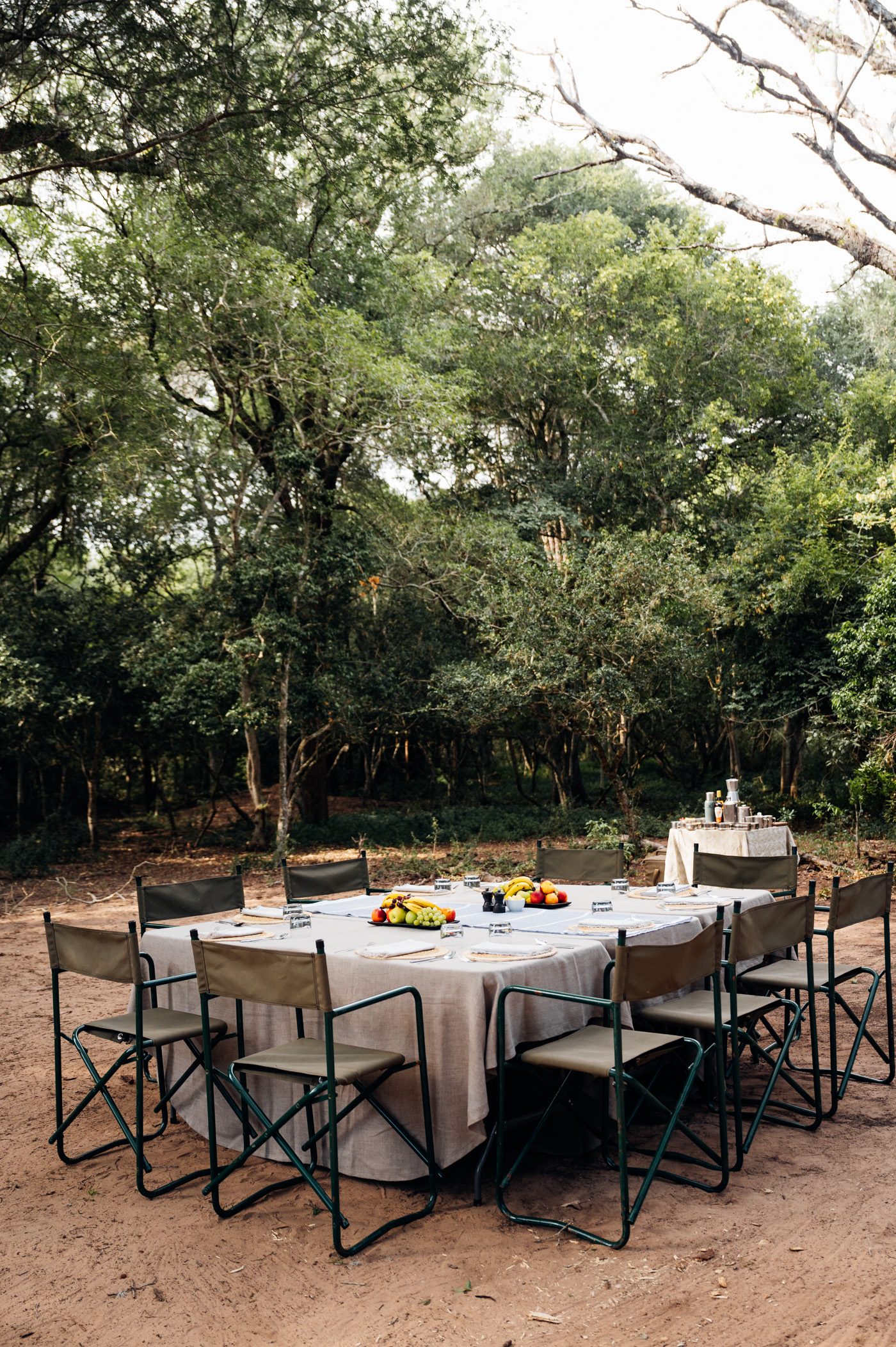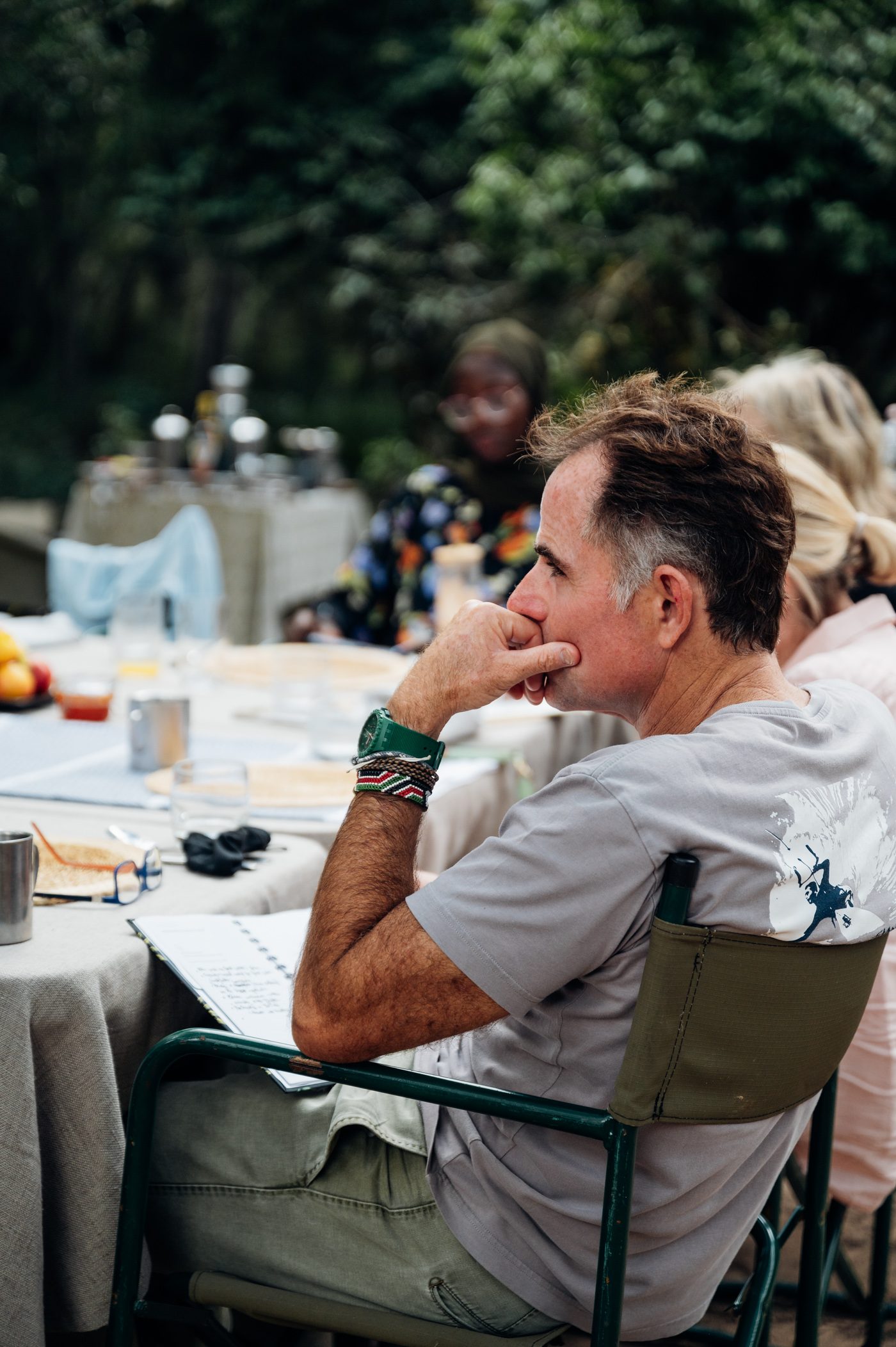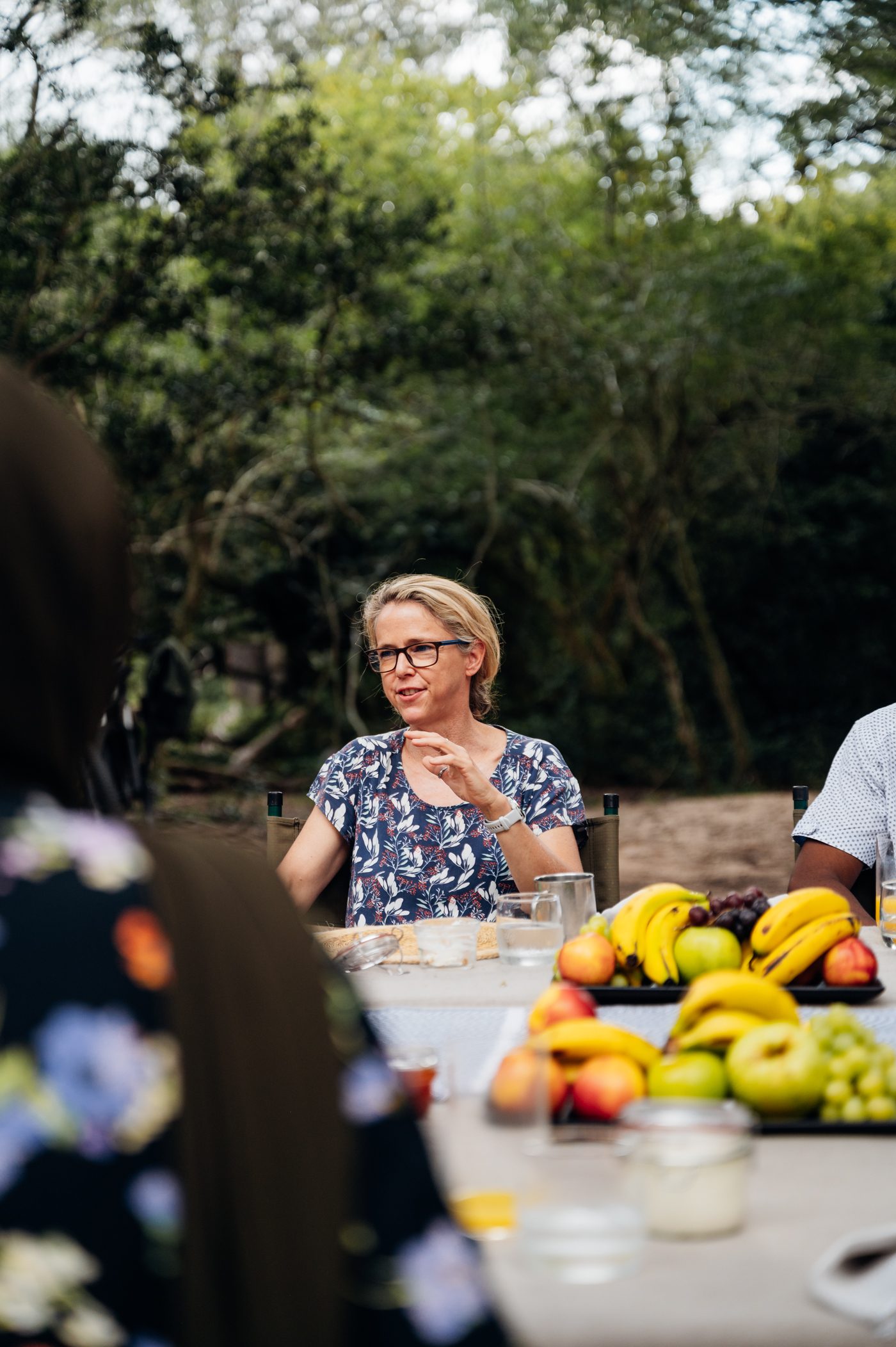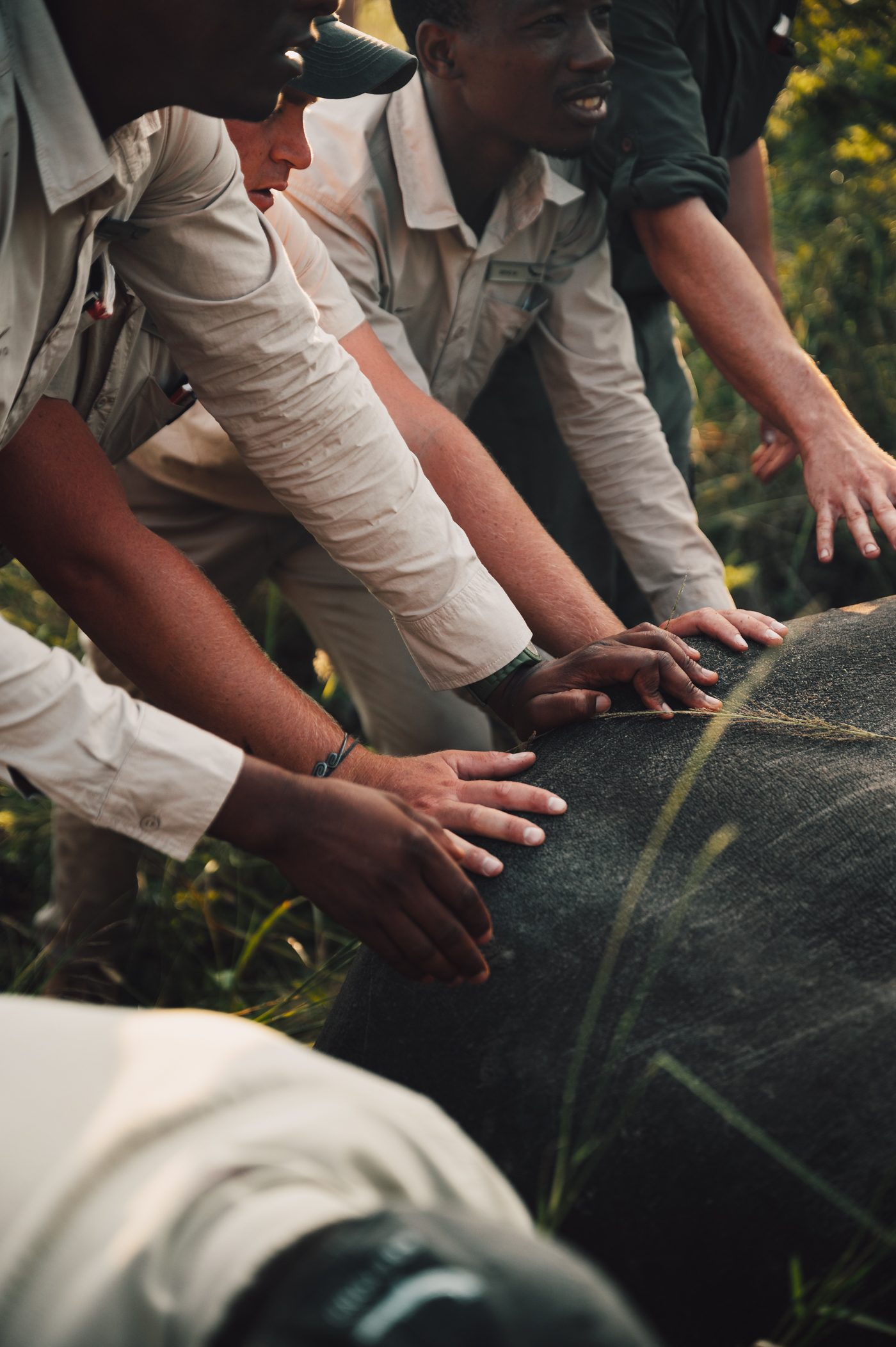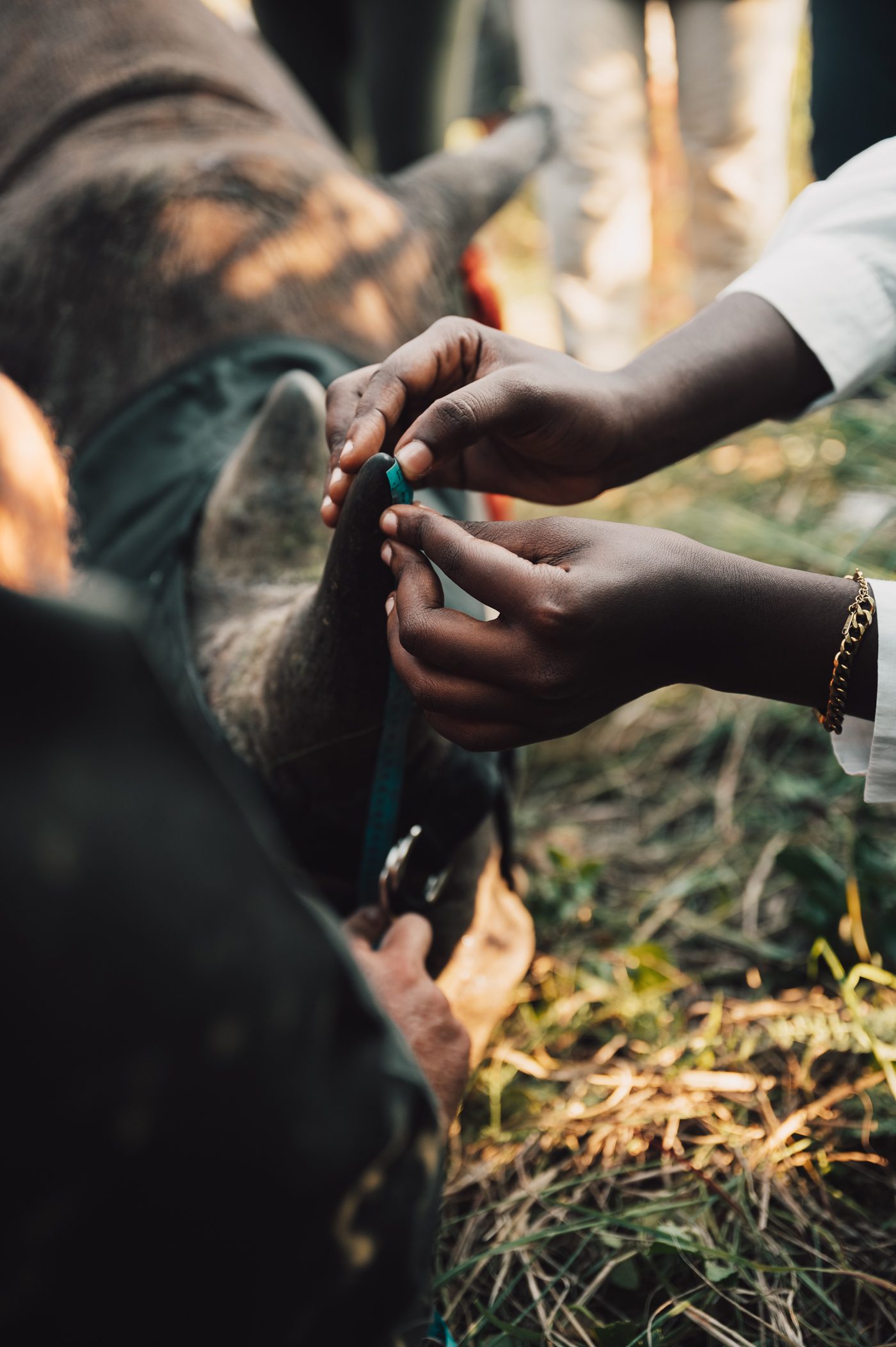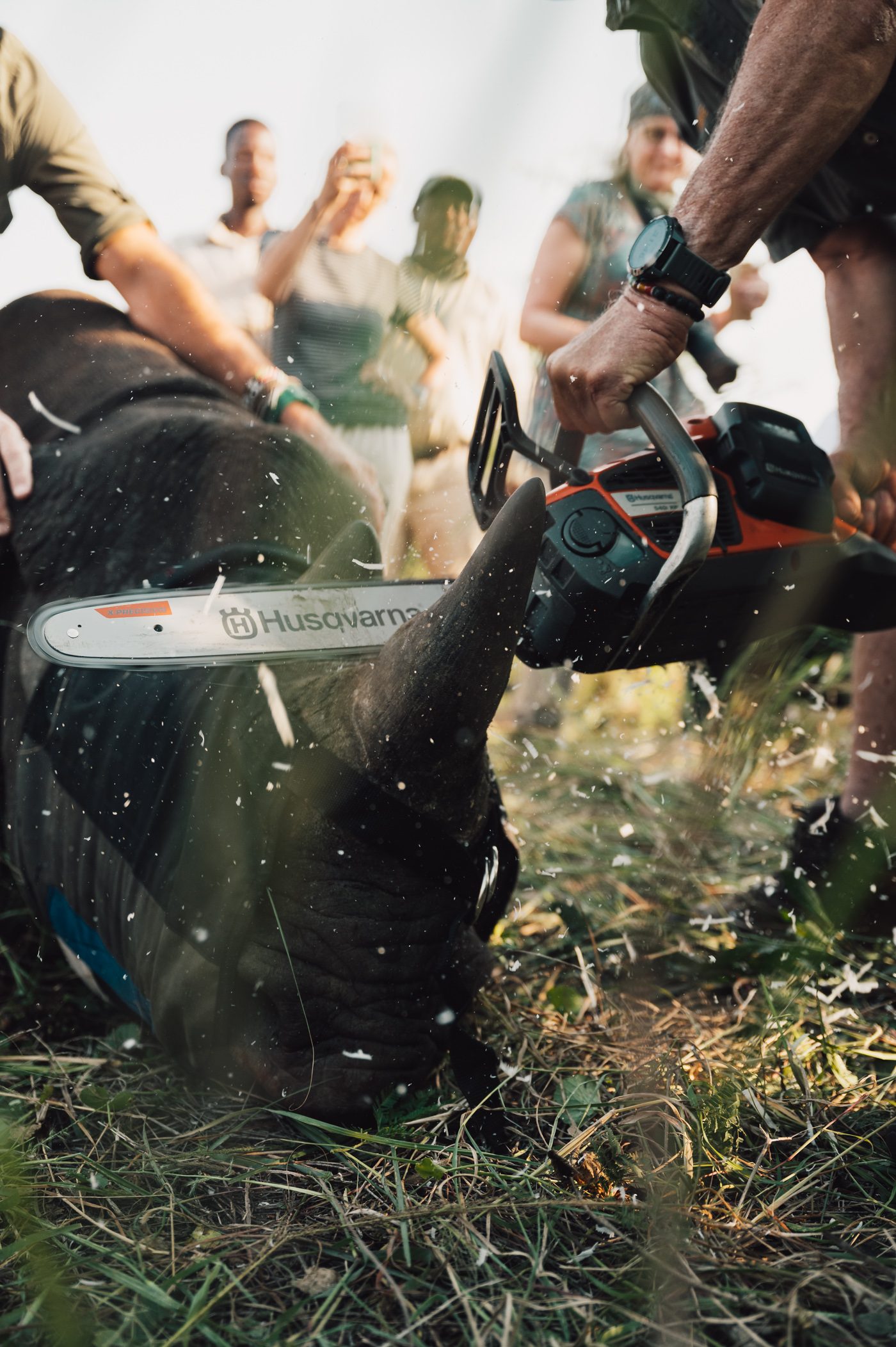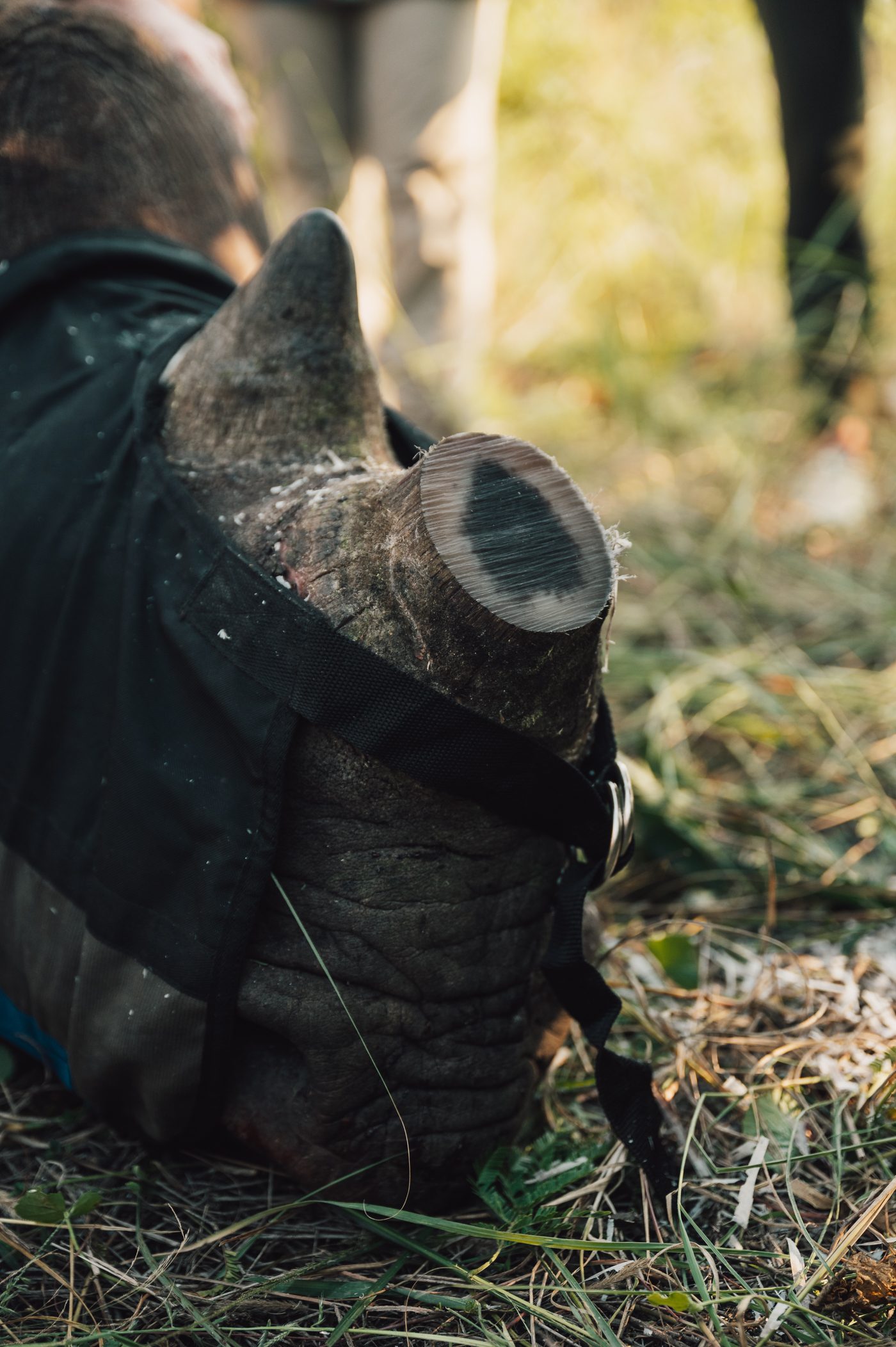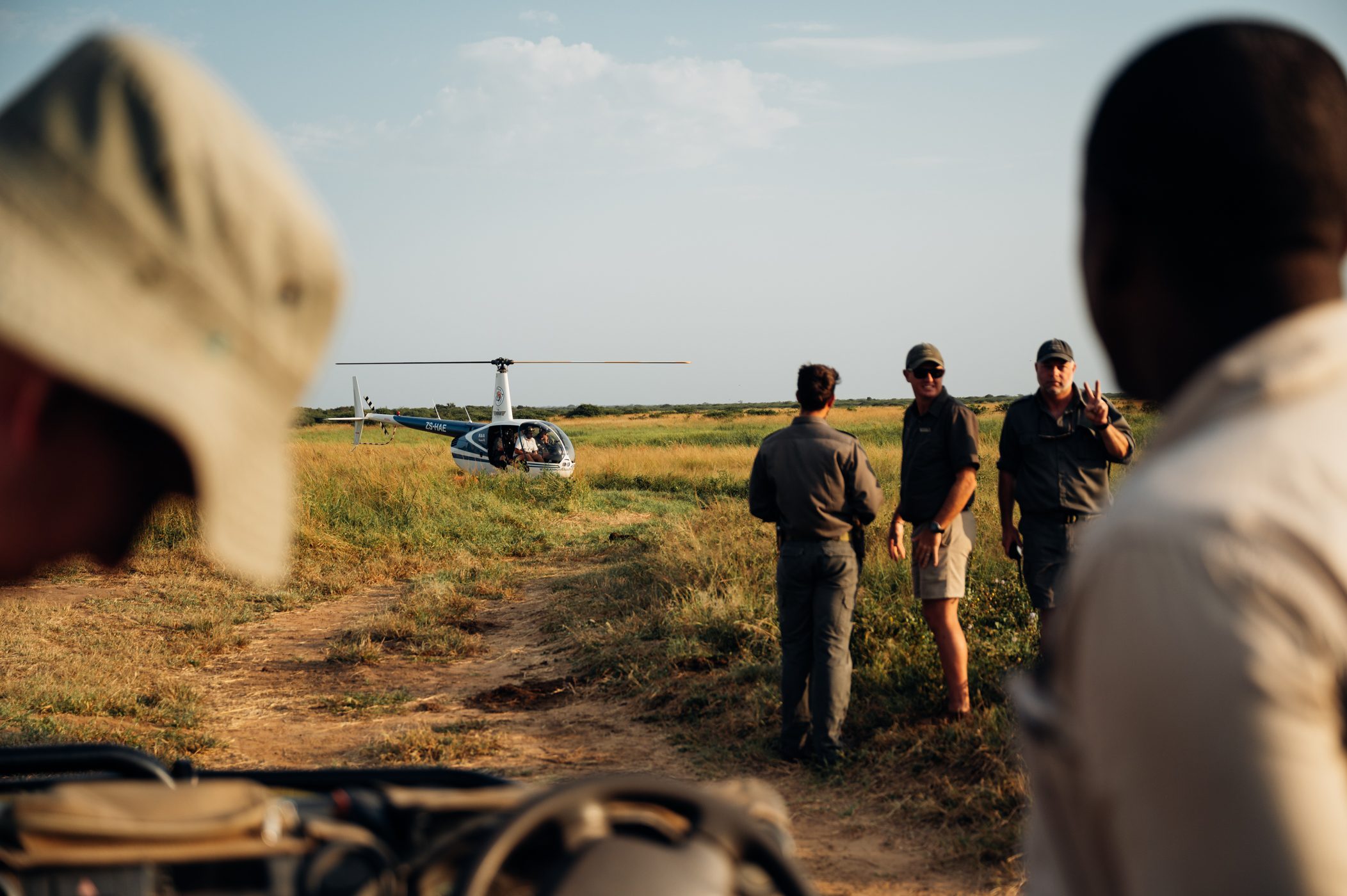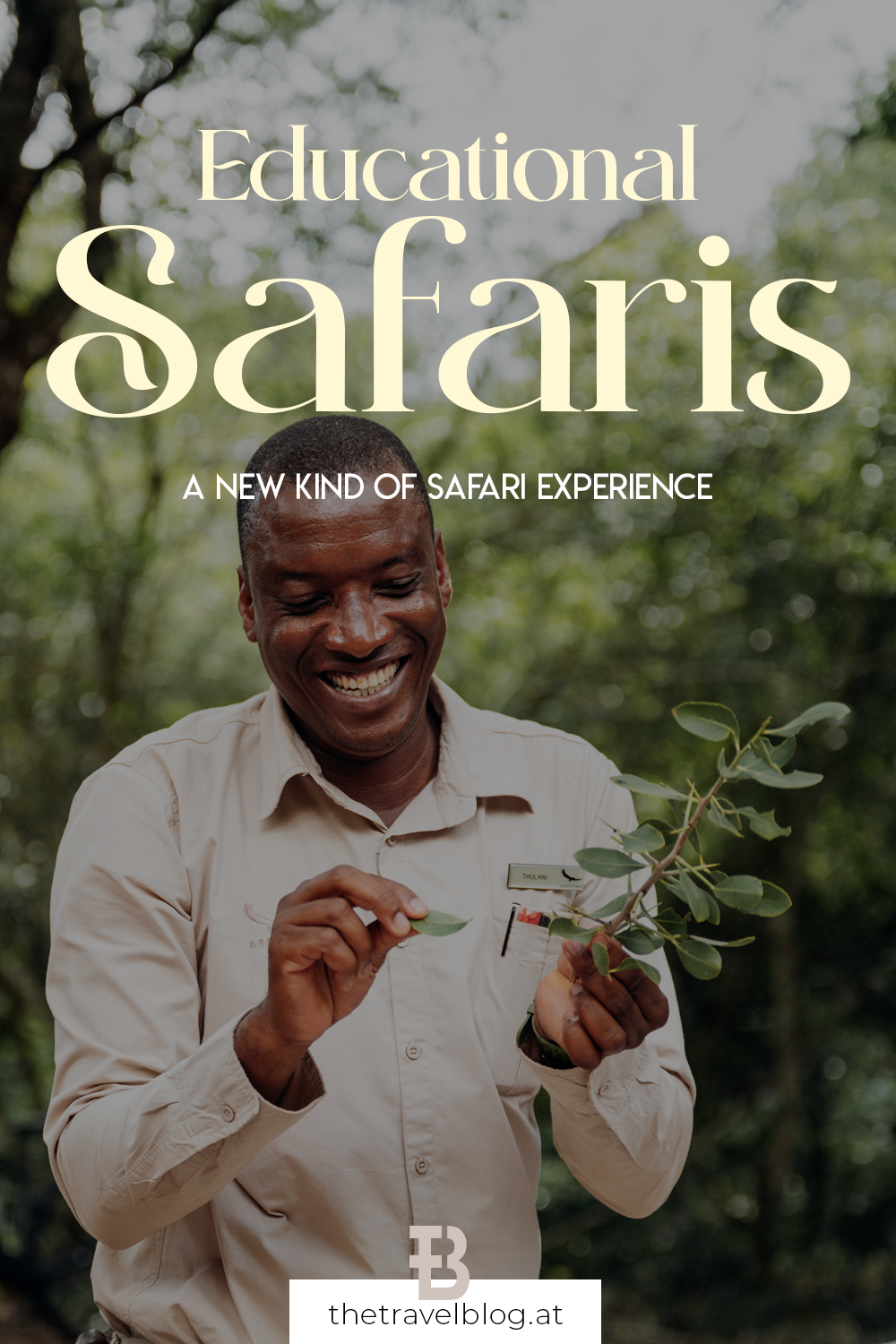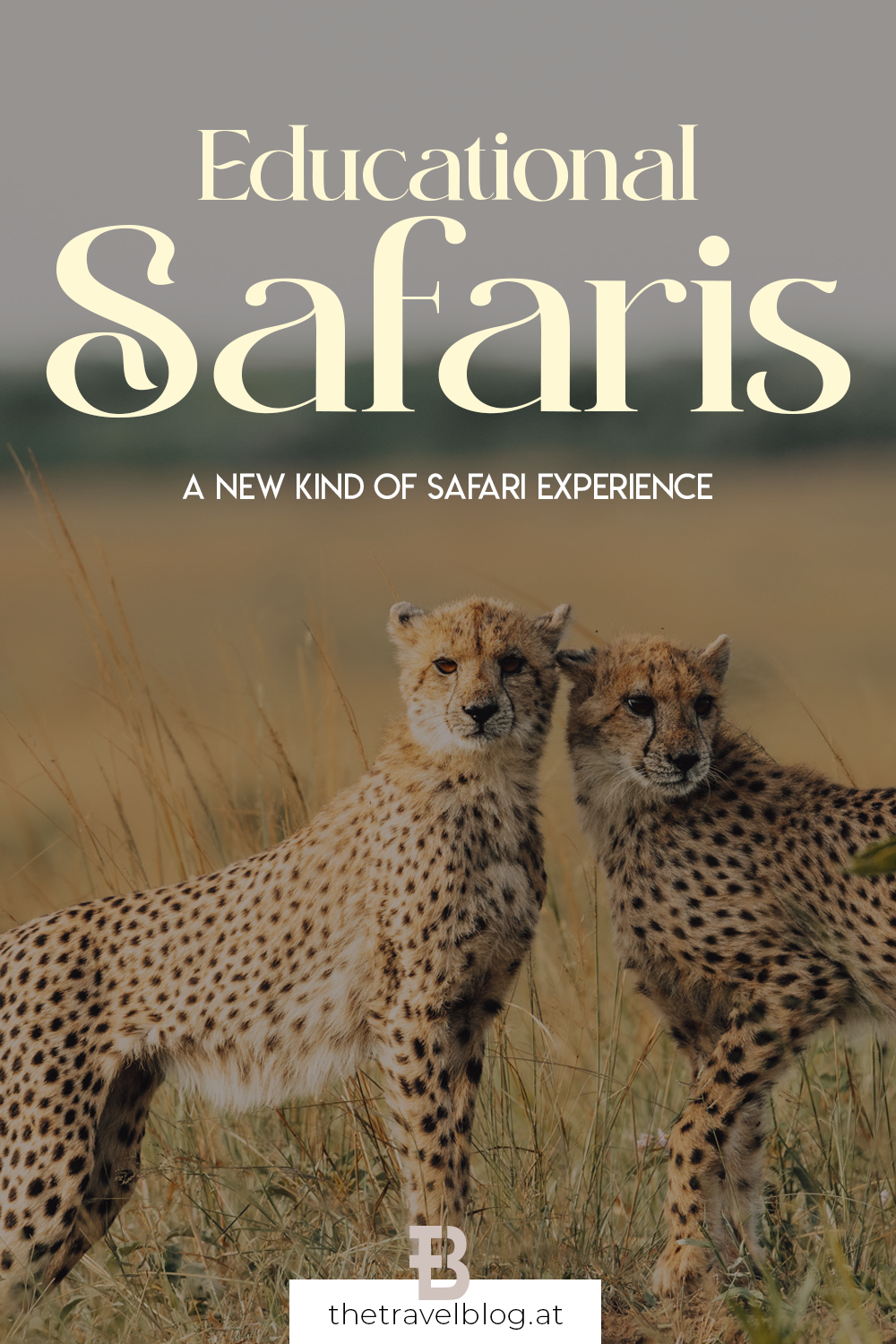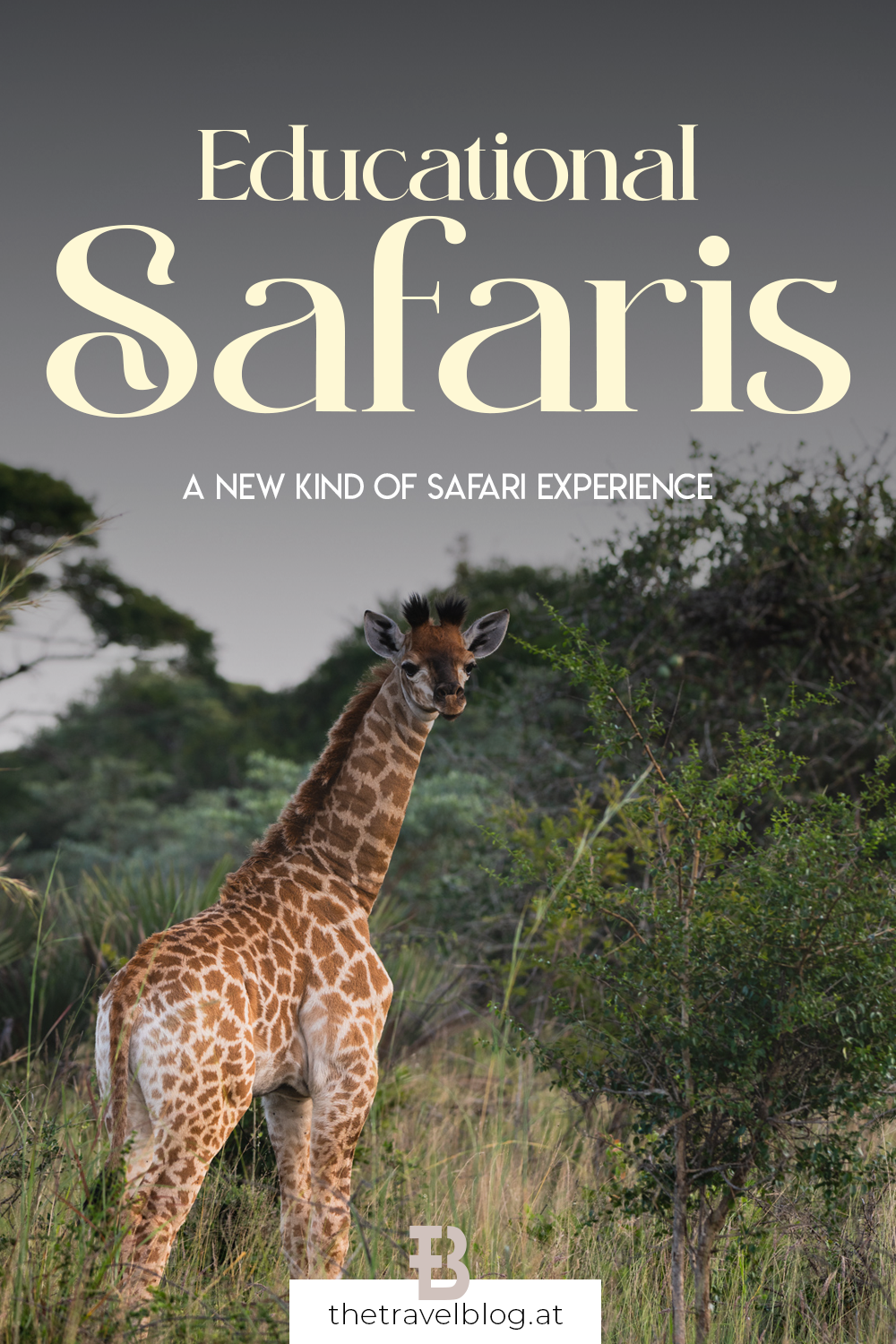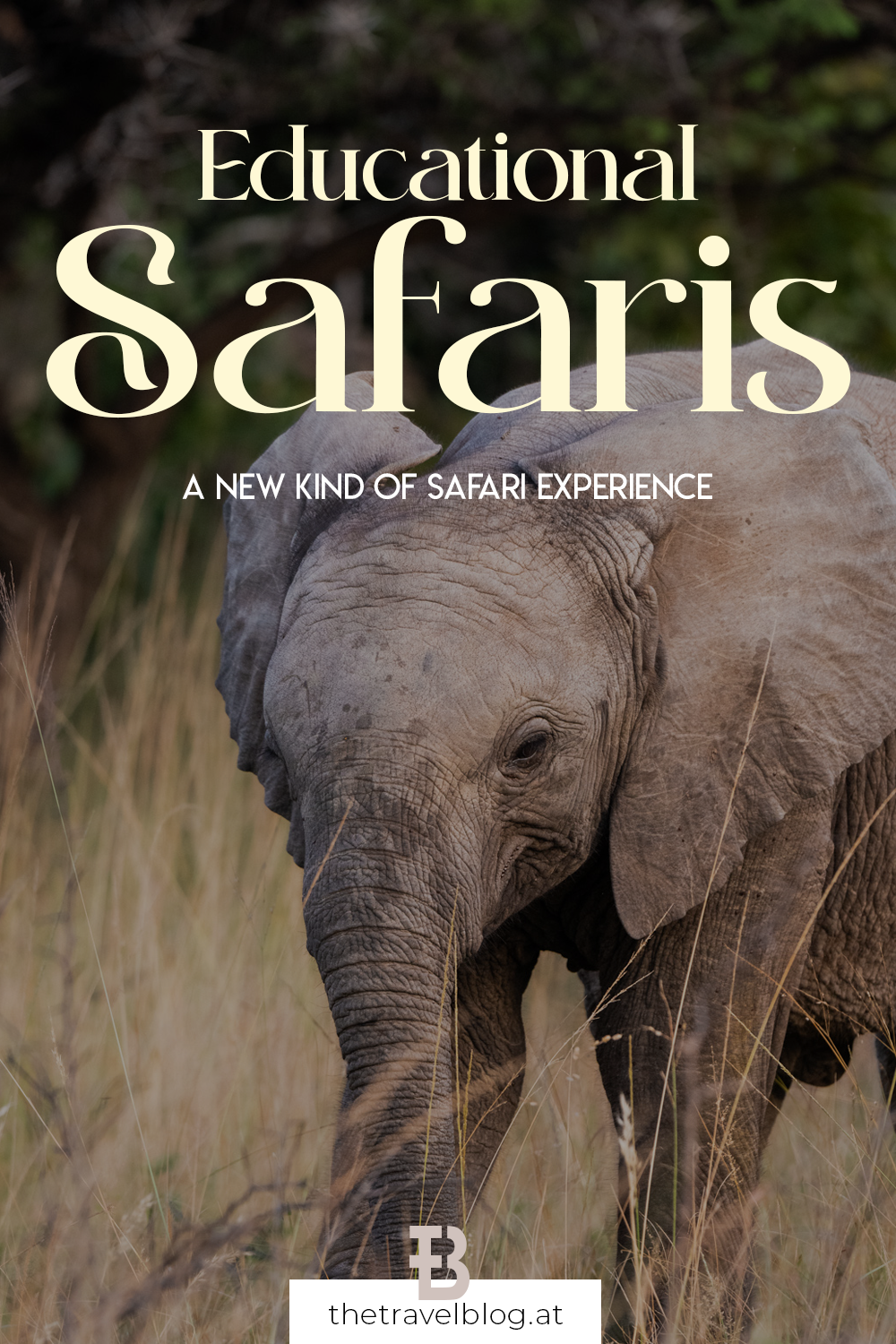It’s a particularly hot day when we arrive at the airstrip of Phinda Private Game Reserve in the Kwazulu-Natal region in South Africa. We embark on our game viewing vehicle and are immediately struck by the heat of the headwind, treating us to an unwarranted blow dry. It’s just minutes later that we encounter the first zebras and the safari feeling fully sets in.
If you’ve ever been on a safari you know what follows next. The experienced safari guide explains the behaviour of the animals, might ask you if you know the skin color of a zebra (white or black?) and there might be a joke about continuing the journey and getting the “typical African massage” (aka the car hopping over branches and holes in the sandy paths of the game reserve). Sounds familiar to you? Then you must have been on one or two safaris yourself!
While there’s nothing wrong with this type of classic safari, there’s a new type of safari tourism slowly emerging for the more seasoned Africa travellers among us.
Educational safaris are trending and we believe the trend is here to stay.
On a trip like the andBeyond WILDeconomy masterclass, which is run in partnership with African Leadership University (ALU), you will be treated not only to a safari with all the typical elements from game drives to sundowners, but there’s an added bonus:
You’ll get to learn what goes into the protection and conservation of nature and wildlife while you’re in the bush.
Sounds like something you might enjoy? Then let us share a few more insights into this type of educational journey.
Pictured from top left to bottom right: Dr. Sue Snyman (Director of Research at the ALU’s School of Wildlife Conservation), Dennis Nyarko (ALU Global Challenges degree student), Nicola Harris (Founder of Click Learning), Charli de Vos (Ecologist at Phinda Private Game Reserve), Emma Gregg (Travel journalist) and Klara Glowczewska (Executive Travel Editor at Town&Country)
The power of educational tourism
As magical as a safari is–with that indescribable feeling of being fully immersed in nature and surrounded by the magic of the bush–most of us don’t really know how much it takes to make these experiences even possible. The efforts to conserve the megafauna & the ecosystems that are their home are immense, and not just in Africa. The battles for their protection aren’t only fought in the bush, but around conference tables and in parliaments and oval offices across the world.
When learning more about nature and wildlife conservation you get to appreciate every animal encounter on an even deeper level. Suddenly your eyes are opened to what it means that these beings can still exist in a world that’s hungry for land. Hungry for development. And ever growing.
The magic of the bush: Deeply felt & appreciated
It’s a simple equation: With population growth and development comes increased demand for land. And conservation is simply a form of land use. If an ecosystem is preserved the possibilities for other types of land use–from agriculture to settlements–disappear. To this day nature has been exploited for exactly this reason: Human development. On the expense of fauna and flora alike.
The problem starts at the root: The way we perceive nature. As commodity. As resource. Something to be used. To be exploited. During the masterclass we learn a new way to look at nature from an economical and political perspective: As a critically important asset. It’s a simple shift in the narrative. But it concludes in a very different approach to nature conservation. One where it suddenly makes sense to invest and grow, as you do with your assets. What a wake-up call!
And suddenly your perspective shifts. You look at nature differently. The magic of the bush enters a deeper level.
How safari tourism and conservation are interconnected
Just a few hours after our arrival we find ourselves on an afternoon game drive surrounded by a large herd of elephants silently grazing. Our guide James has to reverse the car multiple times to make room for one of the feistier bulls. And just as the awe of this encounter begins to settle in, he gently reminds us to envision a different narrative—one where our observation of animal behavior wasn’t merely a captivating holiday experience, but a crucial tool in the fight for conservation.
In this new reality, knowing the significance of protecting these gentle giants from a conservation perspective transforms our appreciation into a solemn duty.
As the sun dipped below the horizon, casting a blanket of twilight over the savanna, the realisation dawned on all of us. What a profound difference these insights make–not just in our safari experience, but also in our shared duty in safeguarding the future of Africa’s wildlife. Suddenly our safari isn’t just a safari anymore. It’s a conservation activity. It gains meaning. That’s the power of educational ecotourism!
Ecotourism: One way to conserve nature
The next morning we wake up to some harsh realisations. We quickly learn, that ecotourism is just one type of activity within the wildlife economy, yet one that is particularly complicated to set up and maintain. We also have to accept the fact that ecotourism simply is not possible in many ecosystems–be it for political reasons, limited access or transportation options, vegetation or climate conditions–there’s many factors to take into account. Yet, also these ecosystems are worth safeguarding. This is where other types of economic possibilities come into play.
We learn about the significance (and lack of measuring) of the non-timber forest product economy, about game ranching and the differences to game farming, the hunting and fishing economies as well as the possibilities of the carbon market. Each of these topics is part of the WILDeconomy masterclass, that we’re attending–amidst the fantastic backdrop of the flourishing Phinda Private Game Reserve, home to the Big 5 and a dedicated team of conservationists and rangers working to protect it.
Pictured from top left to bottom right: Ndey Amie Jobe (ALU Global Challenges student), Dr. Sue Snyman (Director of Research at the ALU’s School of Wildlife Conservation), andBeyond Guide Thulani Mbazini, andBeyond Phinda team
The masterclass is facilitated by the ALU, the African Leadership University, particularly its “School of Wildlife Conservation” unit and the Research Director Dr. Sue Snyman. She leads the discussions and lessons of the masterclass, sharing her years of experience studying wildlife economies all over Africa and giving us valuable insights, we would never have access to on a regular safari.
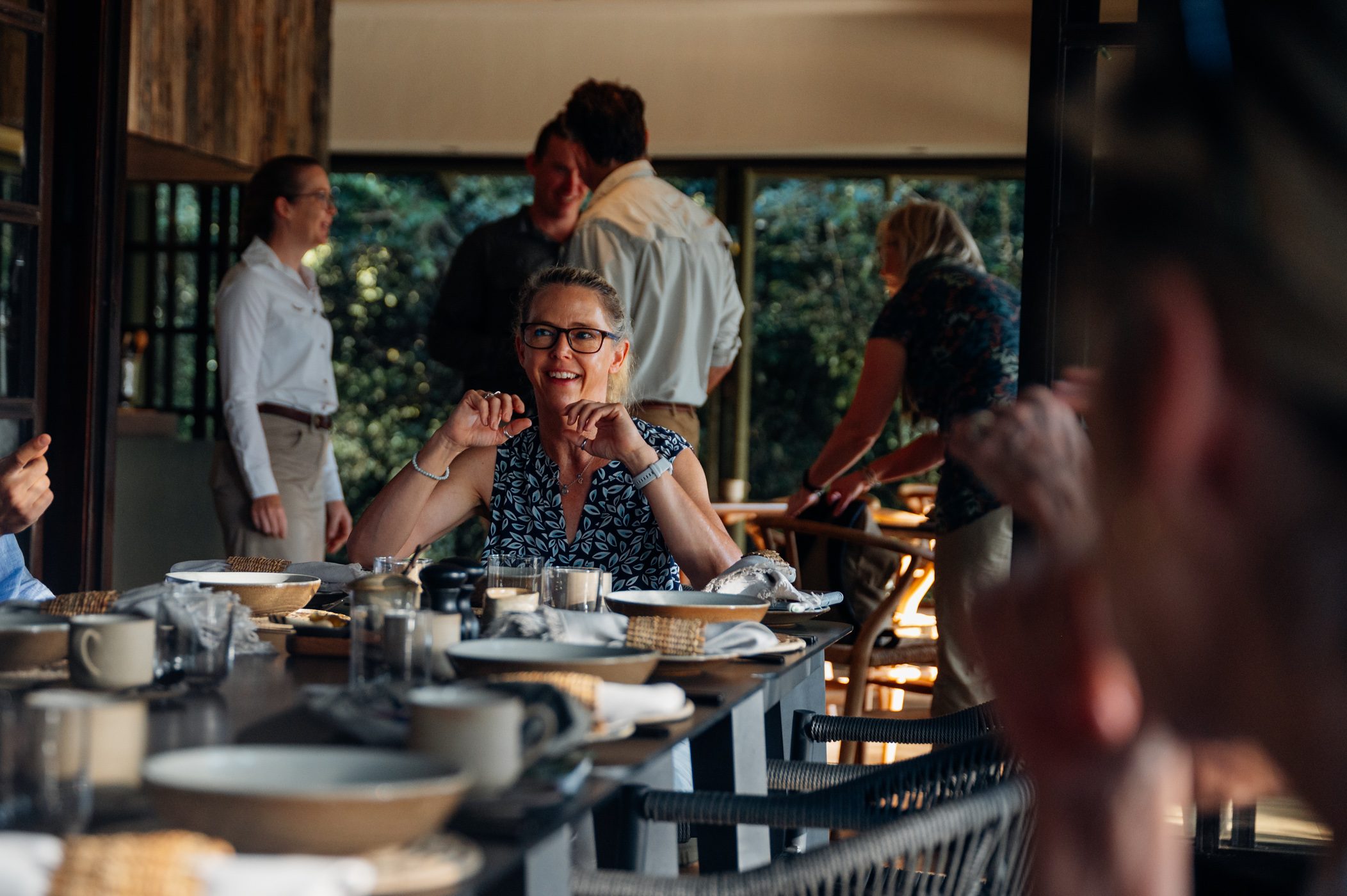
“860 million people in Africa use forest products for livelihoods and sustenance” explains Dr. Snyman, while also noting that the forest economy is largely unaccounted for and not considered by governments for taxes and GDP calculations. “Therefore forests aren’t seen as assets, but only as resource”, which makes them more prone to unsustainable timber logging or transformation into industrialised agricultural land. This is just one of the many examples, where action has to be taken to ensure we start measuring the impact of nature, also on an economic scale. And that’s the work of wildlife economists like Dr. Snyman.
Alongside Dr. Snyman two ALU students join the masterclass, Ndey Amie Jobe and Dennis Nyarko, both 2023 graduates and on the best way of changing the narratives around nature conservation. The WILDeconomy masterclass contents are Dr. Sue Snyman’s brainchild for the most part and after this trip it’s easy for us to see that together with her students they are going to change the dynamics in politics and public perception about nature in the hopefully not so distant future. Their united goal: Making us all realise that nature isn’t something that needs to be protected from humans, but needs to be conserved for humans.
Conservation and development need to go hand in hand, “they are not mutually exclusive, but intrinsically interlinked” explains Dr. Snyman.
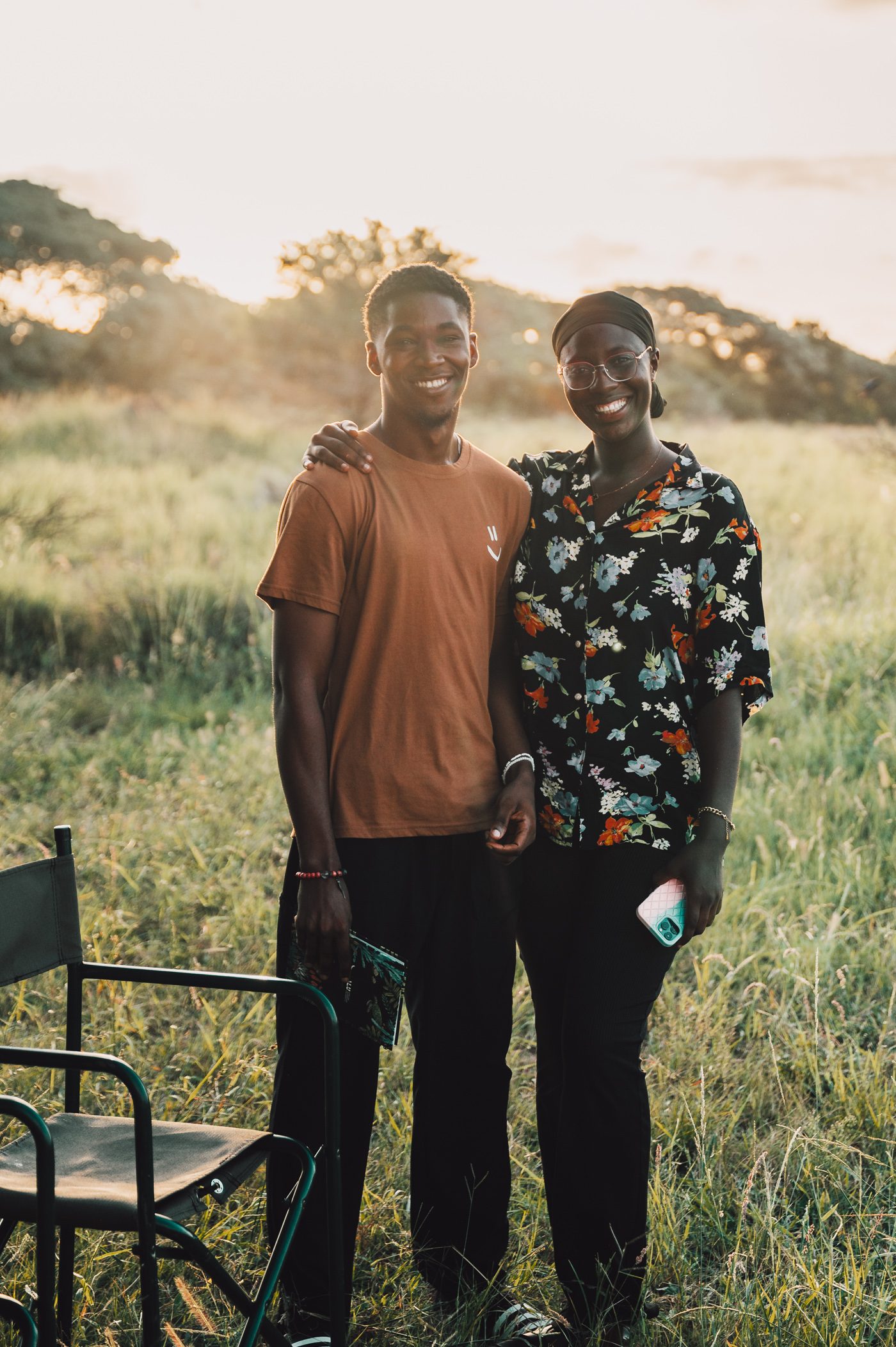
What the WILDeconomy masterclass journey entails
But back to the travel experience! While this trip feels like a mini university course in many ways, it’s still a tourism product after all. We’re not sitting in a lecture hall during these masterclass sessions, but find ourselves brunching in the sand forest while learning about forest products or sitting around a campfire during golden hour in the savannah discussing trophy hunting.
The sessions are full to the brim with valuable inputs and interactive discussions. We quickly fill our notebooks with more and more facts and information about the wildlife economy. After every lesson our minds are racing–how little we all knew about nature conservation and the link to development! We quickly come to the conclusion that every economist or politician in a nature or sustainability resort should attend this masterclass…
Pictured from top left to bottom right: andBeyond Guide Thulani Mbazini, Joss Kent (andBeyond Executive Chairman & CEO), Dr. Sue Snyman (Director of Research at the ALU’s School of Wildlife Conservation),
As a participant of the andBeyond WILDeconomy masterclass you’ll get the best of both worlds: Each day consists of a mix of typical safari activities like game drives and daily masterclass lessons. We spend our five days in Phinda Private Game Reserve on exhilarating e-bike rides, where we end up encountering elephants directly next to us as well as sampling typical South African Braai dinner in the bush.
And to top things off we also participated in conservation activities like a telemetry introduction where we track collared elephants as well as a canine ranger unit demonstration with their tracking dogs. And even a rhino dehorning mission, which is truly a once-in-a-lifetime experience.
The masterclass program is multifaceted and very well organised–it never gets boring or repetitive.
Social impact of an educational safari
During the masterclass we were also joined by Dr. Andrew Venter, the CEO of the Africa Foundation, the non-profit sister of andBeyond. Together with him and his team we got to learn about the social impact of a sustainable safari during a half-day visit of the communities around Phinda Private Game Reserve.
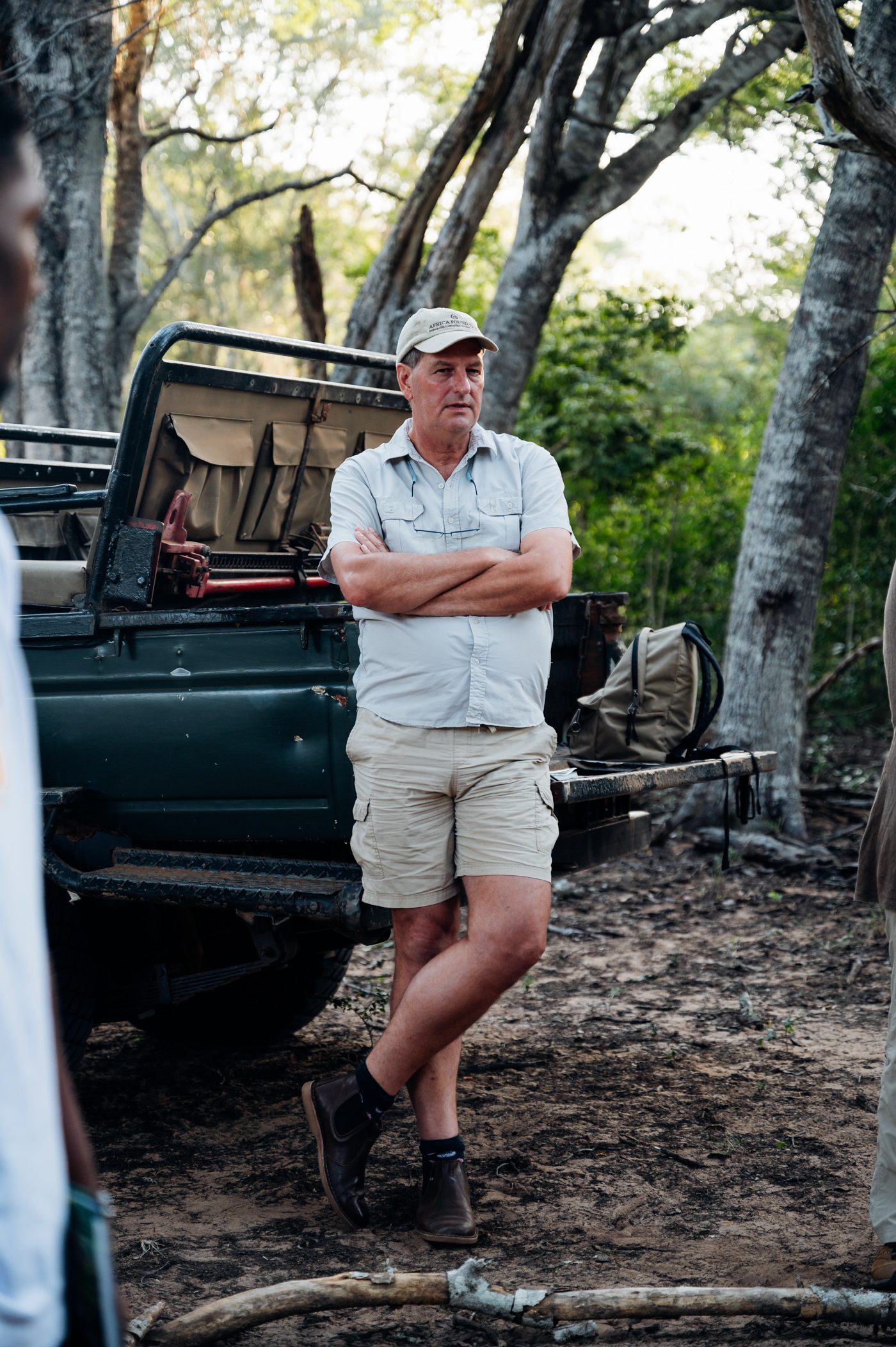
All of Africa Foundation’s operating costs are fully funded by andBeyond tourism revenue. Additional project costs are covered by donations and public funding, and their work centres around ecosystem conservation, health and education projects as well as community empowerment. We get treated to a visit of two of the five surrounding communities around Phinda Game Reserve and meet a handful of the foundation’s staff and local community members and projects, who tell us about the impact the establishment of the conservancy had on their lives.
“For years we heard that there is no economy in rural communities“ explains Dr. Venter, and goes on to prove how wrong these sentiments by politicians and global leaders were. One of the Africa Foundation programs called “Hustle Economy” supports around 450 entrepreneurs in the Phinda communities and resulted in 70,000 USD additional profit per month generated.
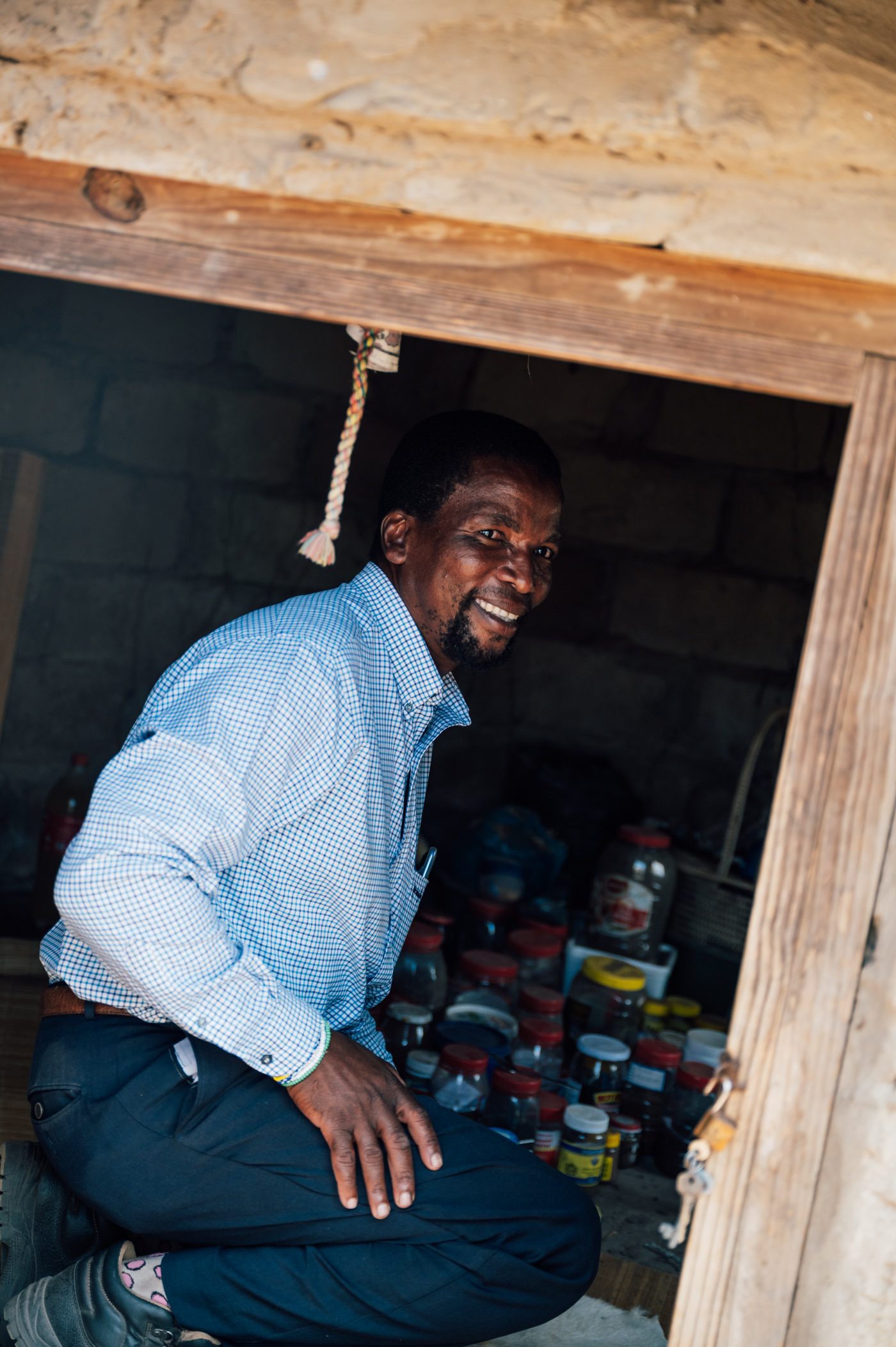
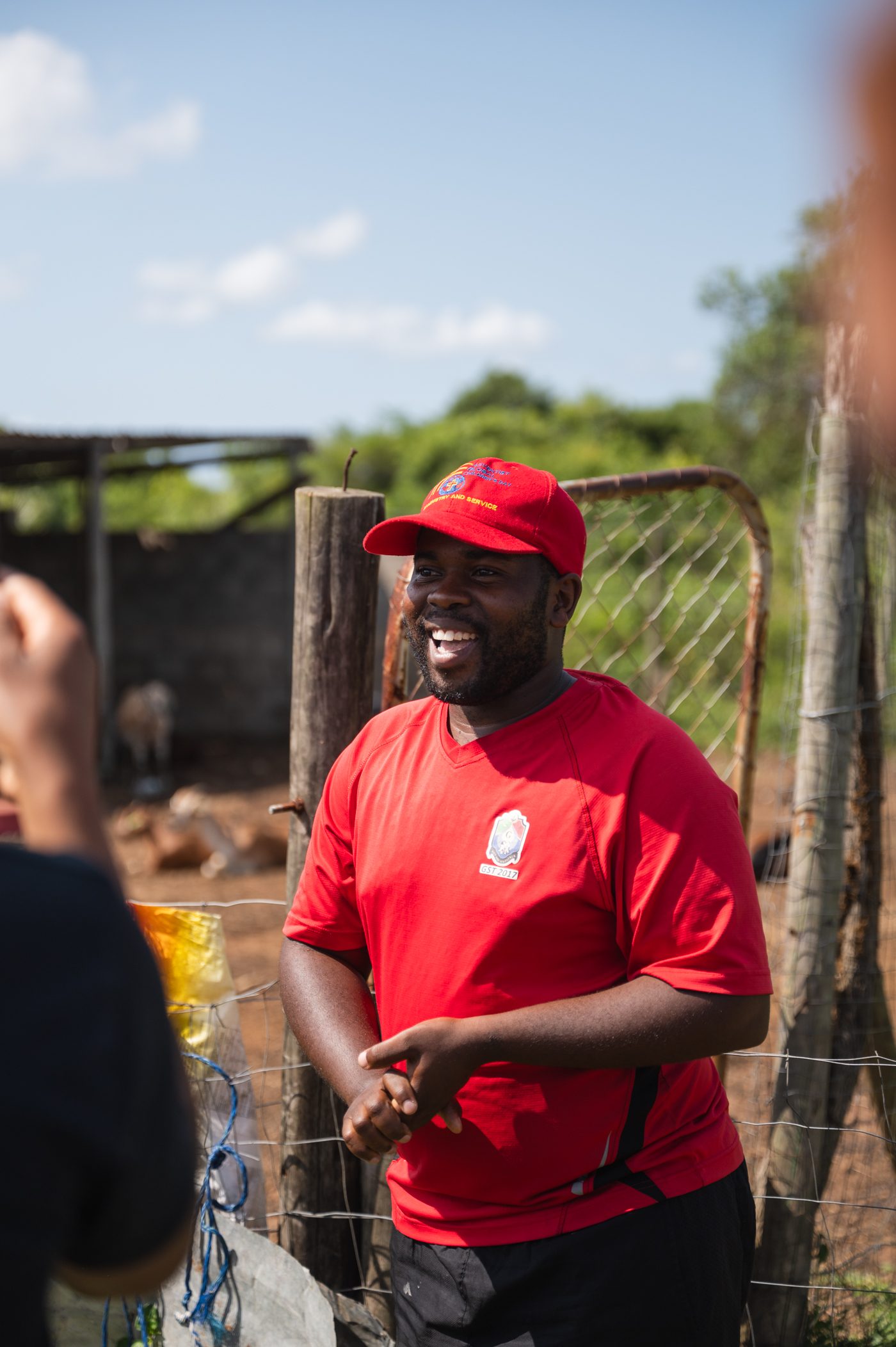
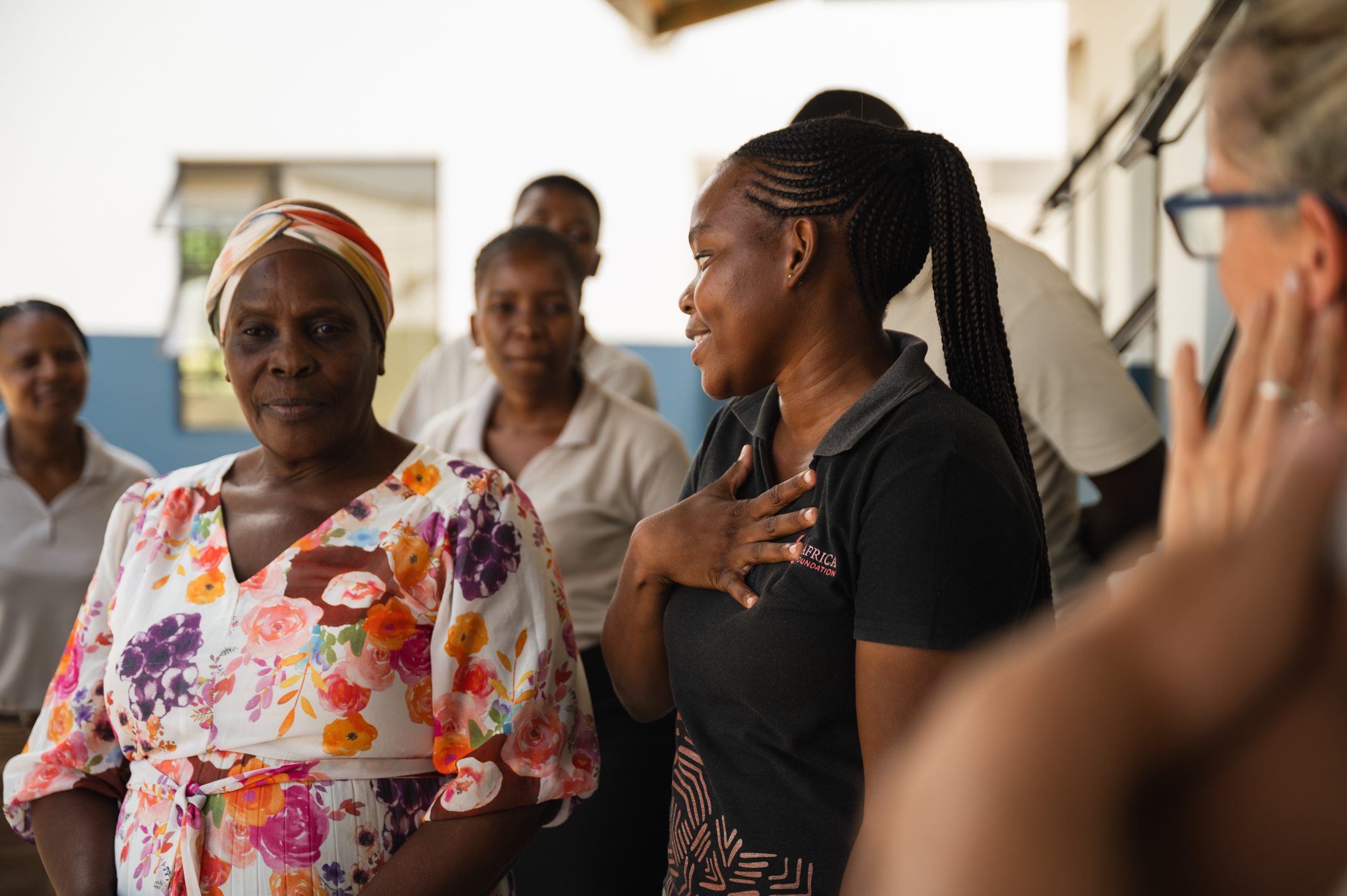 Pictured from left to right: Traditional healer Mr. Nhlanhla Zikhali, agriculture entrepreneur Ngcebo Msani, Mrs Mpontshane head of the Sibonokuhle Creche together with Africa Foundation member Ms. Cebelihle Ntuli.
Pictured from left to right: Traditional healer Mr. Nhlanhla Zikhali, agriculture entrepreneur Ngcebo Msani, Mrs Mpontshane head of the Sibonokuhle Creche together with Africa Foundation member Ms. Cebelihle Ntuli.
Are you ready for an educational safari?
With all that one question remains: Are you ready for such a type of educational safari? Maybe not, if it’s your first ever safari trip to Africa, where you really only want to get in touch with nature and wildlife. But if you are a repeat safari traveller, we believe this might be a logical conclusion to expand the horizon and to understand and see safari tourism in a different light.
Today travellers are increasingly drawn to experiences, that not only delight the senses, but also enrich the mind and soul on a deeper level. As sustainability and ethical tourism take center stage, educational safaris are emerging as a new trend in the realm of African adventures and we’re here for it.
Or pin and save this post for later:
Disclaimer: This is a not a sponsored post, but we were invited to the andBeyond WILDeconomy masterclass as part of a press trip. The views in this blogpost are our own.

